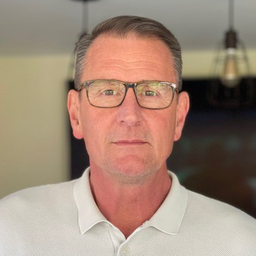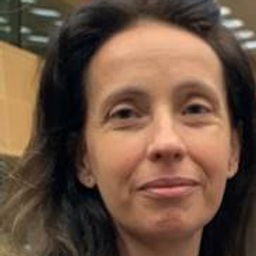- You are here:
- Homepage
- Events
- Past Events
- ICPA Antwerp 2023
- Programme

ICPA 2023 Programme
Opening Ceremony
Plenary Session
Opening Ceremony
8.45am – 8.55am EDT, 23 October 2023 ‐ 10 mins
Plenary Session
Welcome and Introduction
Plenary Session
Welcome and Introduction
8.55am – 9.05am EDT, 23 October 2023 ‐ 10 mins
Plenary Session
Speakers
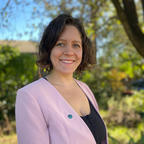
Opening Speech
Plenary Session
Opening Speech
9.05am – 9.15am EDT, 23 October 2023 ‐ 10 mins
Plenary Session
Speakers
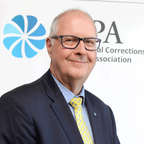
Host Country Speech
Plenary Session
Host Country Speech
9.15am – 9.25am EDT, 23 October 2023 ‐ 10 mins
Plenary Session
Speakers
Host City Welcome
Plenary Session
Host City Welcome
9.25am – 9.30am EDT, 23 October 2023 ‐ 5 mins
Plenary Session
Speakers
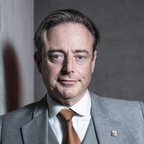
Humanity and Dignity in Corrections (PID219)
Plenary Session
Humanity and Dignity in Corrections (PID219)
9.30am – 10.30am EDT, 23 October 2023 ‐ 1 hour
Plenary Session
Speakers

Break and Exhibition
Break and Exhibition
Break and Exhibition
10.30am – 11am EDT, 23 October 2023 ‐ 30 mins
Break and Exhibition
Women in Prison and Previous Victimization: The Need for a Partnership with Women's Shelters (PID165)
Workshop Session
Women in Prison and Previous Victimization: The Need for a Partnership with Women's Shelters (PID165)
11am – 11.30am EDT, 23 October 2023 ‐ 30 mins
Workshop Session
Considering the strong relationship between violence endured throughout life and criminal behavior, establishing a partnership between women's shelters and prisons to receive their expert support on a regular basis seems to be of crucial importance for any rehabilitation program concerning women. This collaboration has the potential to significantly reduce reoffending rates.Taking care of the inner suffering of offenders, especially for women offenders, is equally as important as providing education or vocational training to them.
Speakers
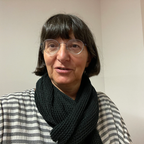
Claudia Pecorella PhD
Full Professor of Criminal Law, University of Milano-Bicocca, Italy
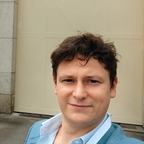
With Good Reason: A Study of the Alignment of Prison Conditions in Bolivia and Honduras with the Nelson Mandela Rules (PID151)
Workshop Session
With Good Reason: A Study of the Alignment of Prison Conditions in Bolivia and Honduras with the Nelson Mandela Rules (PID151)
11am – 11.30am EDT, 23 October 2023 ‐ 30 mins
Workshop Session
Speakers
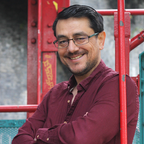
Prison Family Unit - A Therapeutical Environment for Babies and Parents (PID034)
Workshop Session
Prison Family Unit - A Therapeutical Environment for Babies and Parents (PID034)
11am – 11.45am EDT, 23 October 2023 ‐ 45 mins
Workshop Session
A prison sentence affects the whole family. Separation from a parent affects the child, especially when the child is small. Parenting can also be a main factor in rehabilitation. The Prison Family Unit supports the parent during the sentence and at the same time builds multidisciplinary support network for release. In cooperation between the prison and the Family Unit, parenting can be supported, encouraged and strengthened. The goal is to break the intergenerational cycle of crime.Speakers
Ghana Prisons Surgical Project - A Tool For Creating Humane Corrections - Medium Security Prisons, Nsawam As A Case Study (PID213)
Workshop Session
Ghana Prisons Surgical Project - A Tool For Creating Humane Corrections - Medium Security Prisons, Nsawam As A Case Study (PID213)
11am – 11.45am EDT, 23 October 2023 ‐ 45 mins
Workshop Session
Admissions with elective surgical cases diagnoses were common and comparable to previously published rates of disease in the general population, but low rates of surgical wound infection and re-occurrence rate. it is an ethical obligation to better understand opportunities for improvement in access to care, provide equivalent operations and postoperative attention, as well as strive for robust data collection to prove equivalent excellent outcomes in the incarcerated population.Speakers

Practice Transfer Taskforce and Case Study: Can the Global Game Help Solve the Global Problem of Recidivism? (PID222)
Workshop Session
Practice Transfer Taskforce and Case Study: Can the Global Game Help Solve the Global Problem of Recidivism? (PID222)
11am – 12.30pm EDT, 23 October 2023 ‐ 1 hour 30 mins
Workshop Session
Speakers
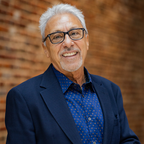


Jason Swettenham
Head of Prison Industries, Catering and Physical Education, HM Prison Service, United Kingdom


Enhancing the Resilience of Prison Management During Times of War (PID224)
Workshop Session
Enhancing the Resilience of Prison Management During Times of War (PID224)
11am – 12.30pm EDT, 23 October 2023 ‐ 1 hour 30 mins
Workshop Session
Speakers

Serhii Hrechaniuk
Head of the State Penitentiary Service, State Penitentiary Service, Ministry of Justice, Ukraine
The Next Generation of Mothers and Children’s Programs - An Evidence-based Approach (PID139)
Workshop Session
The Next Generation of Mothers and Children’s Programs - An Evidence-based Approach (PID139)
11.30am – 12pm EDT, 23 October 2023 ‐ 30 mins
Workshop Session
M&Cs models of service delivery vary widely and there is a paucity of evidence regarding the necessary components and evaluation of successful M&Cs that also aligns with a human rights-based approach. The next generation of M&Cs must be evidence-based, include key components that can be implemented in correctional facilities, and be rigorously monitored and evaluated. The synthesis of the existing evidence-base provides an opportunity for correctional facilities to redesign M&C programs and incorporate a standardised model of service delivery that effectively meets the needs of incarcerated mothers and their children.
Speakers

Professor Elizabeth Sullivan
Pro Vice Chancellor, Research Lead Custodial Health, The University of Newcastle, Justice Health and Forensic Mental Health Network, Australia

‘Not Just Another New Prison Building’: A New Prison Delivering a Psychologically Informed Operating Model (PID058)
Workshop Session
‘Not Just Another New Prison Building’: A New Prison Delivering a Psychologically Informed Operating Model (PID058)
11.30am – 12pm EDT, 23 October 2023 ‐ 30 mins
Workshop Session
The underpinning principles of Home, Health and Homeliness promotes communal responsibility and identifies individual needs, creating individualised resettlement programs where families are supported and self agency encouraged. Prisoner engagement is achieved by our compact with prisoners to take ownership through our 'no decisions about me without me' procedures. Resettlement Services provided by a diverse mix of community organisations (including those with 'lived experience') as a central part of the multi-disciplinary teams. Extensive use of Release on Temporary Licence supports education, work and employment provision for those who meet the criteria. Education links directly with employers criterion and employers provide training workshops within the prison. Staff skills and training developed to create competence and confidence with new environment and requirements. An 'offence neutral' regime is operated where sex offenders are able to achieve their resettlement goals alongside others. A Non-Executive Board of external experts (including those with 'lived experience') provides additional scrutiny and oversight to the Director on a regular basis.Speakers

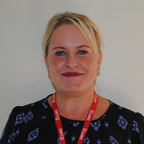
Advancing Humane Treatment: Determining Baseline Prevalence of TB and Associated Conditions in Mozambiques Prisons (PID180)
Workshop Session
Advancing Humane Treatment: Determining Baseline Prevalence of TB and Associated Conditions in Mozambiques Prisons (PID180)
11.45am – 12.30pm EDT, 23 October 2023 ‐ 45 mins
Workshop Session
Mozambique’s high burden of tuberculosis (TB) impacts delivering healthcare in its prisons. Our project uses an integrated care model to strengthen the process by which incarcerated people with TB are identified, treated, and linked to care. Program planning depends on an accurate understanding of baseline conditions, and this has informed our prison to community program design. As a result of our health blitz of 6000 individuals in the first three months of operation, we anticipate prison prevalence of TB and associated co-morbidities are higher than currently documented. We anticipate that healthcare activities, including peer mentoring and disease prevention strategies (e.g. consideration of PREP/condoms etc.) will be introduced as a result of the program interventions, that access to services will increase, and that staff and detainee stigma will reduce. Please come and join us to understand what we did, and to make suggestions for next steps!Speakers
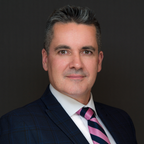

Dr Cremilde Anli
National Director of Healthcare Services , Mozambique Prison Service (SERNAP), Mozambique
Alvis Family & Children's Program, a Community Re-entry Program that Serves Justice Involved Mothers and their Children (PID091)
Workshop Session
Alvis Family & Children's Program, a Community Re-entry Program that Serves Justice Involved Mothers and their Children (PID091)
12pm – 12.30pm EDT, 23 October 2023 ‐ 30 mins
Workshop Session
Alvis’ Family and Children’s Program is built upon three pillars:
1) Parenting education and individualized coaching for mothers,
2) Prevention and educational support services for children to reduce their risk of becoming involved in the justice system and/or having a substance use disorder,
3) Clinical counseling for children who need additional assistance addressing trauma and/or mental health disorders.
Speakers

Improving Prison Environments to Maximize Inmate Outcomes (PID069)
Workshop Session
Improving Prison Environments to Maximize Inmate Outcomes (PID069)
12pm – 12.30pm EDT, 23 October 2023 ‐ 30 mins
Workshop Session
Speakers
Cathryn Lokey
Educational Psychologist, Consultant, Management & Training Corporation, United States
Lunch and Exhibition
Lunch and Exhibition
Lunch and Exhibition
12.30pm – 1.30pm EDT, 23 October 2023 ‐ 1 hour
Lunch and Exhibition
The Council of Europe: How to Make the Imprisonment Effective and Humane at the Same Time? (PID062)
Plenary Session
The Council of Europe: How to Make the Imprisonment Effective and Humane at the Same Time? (PID062)
1.30pm – 2.15pm EDT, 23 October 2023 ‐ 45 mins
Plenary Session
Speakers
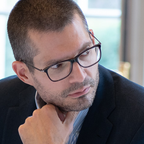
Iso: Perspectives on Solitary Confinement Practices in the Netherlands (PID209)
Plenary Session
Iso: Perspectives on Solitary Confinement Practices in the Netherlands (PID209)
2.15pm – 3pm EDT, 23 October 2023 ‐ 45 mins
Plenary Session
This presentation is in two parts. In the first part, we will introduce key findings and recommendations made in a study of perspectives on the use of isolation in Dutch prisons, commissioned and funded by the Dutch Ministry of Justice led by Dr Sharon Shalev of Oxford University in 2022. The study involved field research in 7 prisons, examining physical conditions and assessing their compatibility with international standards, and 69 interviews with 78 prison managers, officers, psychologists, oversight committee members, and incarcerated people, as well as analysis of statistical data. Some of the questions we asked included: What are the purposes of solitary confinement? Does it fulfil its purposes? Should all prisons have an isolation unit? Should isolation be ‘done’ differently? How long should it last? Findings were then used to inform a series of recommendations to the Ministry of Justice addressing aspects from the design and regime in isolation units, to issues of staffing, duration, and alternatives to isolation.
In the second part of the presentation, Dr Toon Molleman, who commissioned the study on behalf of the Dutch Ministry of Justice, will discuss some of the ongoing challenges around prison isolation, and how findings and recommendations were translated into an action plan by the Ministry of Justice, demonstrating how academic research can inform and feed directly into correctional practice and how we can work together to ensure a more compassionate and humane approach to corrections.
Speakers

Dr Sharon Shalev
Centre for Criminology, University of Oxford and Independent Consultant at SolitaryConfinement.Org, United Kingdom

Toon Molleman PhD
Deputy Director, Division of Prisons and Foreigner Detention, Ministry of Justice and Safety, Dutch Custodial Institutions Agency, The Netherlands
Break and Exhibition
Break and Exhibition
Break and Exhibition
3pm – 3.30pm EDT, 23 October 2023 ‐ 30 mins
Break and Exhibition
Bringing Human Rights to Correctional Policy and Practice in Kenya (PID006)
Workshop Session
Bringing Human Rights to Correctional Policy and Practice in Kenya (PID006)
3.30pm – 4pm EDT, 23 October 2023 ‐ 30 mins
Workshop Session
Speakers
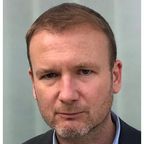
Josh Ounsted
Thematic Leader, Access to Justice, Raoul Wallenberg Institute of Human Rights and Humanitarian Law, Sweden

Salome Wairimu Muhia-Beacco
Principal Secretary, State Department for Correctional Services, Kenya
High Risk Offenders in the Dutch Prison System (PID208)
Workshop Session
High Risk Offenders in the Dutch Prison System (PID208)
3.30pm – 4pm EDT, 23 October 2023 ‐ 30 mins
Workshop Session
Speakers
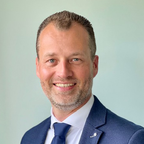
Boye Veldhoen
Program Manager, Custodial Institutions Agency, Ministry of Justice and Security, Netherlands

Toon Molleman PhD
Deputy Director, Division of Prisons and Foreigner Detention, Ministry of Justice and Safety, Dutch Custodial Institutions Agency, The Netherlands
A Collaborative Approach to Success: Family, Community and Employer Engagement (PID130)
Workshop Session
A Collaborative Approach to Success: Family, Community and Employer Engagement (PID130)
3.30pm – 4pm EDT, 23 October 2023 ‐ 30 mins
Workshop Session
- Participants will learn how to implement and enhance programs that support community engagement and employment of persons who are formerly incarcerated.
- Participants will learn about various types of secure technology, to include internet-based, that lead to increased program opportunities and participation.
- Participants will learn how to develop and implement family engagement programs that include external stakeholders.
Speakers


Douglas Dretke
Director of the Office of Comparative and International Education and Leadership, Sam Houston State University, United States

East-West and In Between (PID184)
Workshop Session
East-West and In Between (PID184)
3.30pm – 4.30pm EDT, 23 October 2023 ‐ 1 hour
Workshop Session
The concept of normalisation in the built environment is emerging as a means to support the focus on treatment and rehabilitation. Many architects and planners are demonstrating the use of a normalised environments in very different ways that reflect the local culture and norms. This discussion will use new correctional facilities in three significantly different locations in Canada to define the similarities and differences based on local culture.Speakers
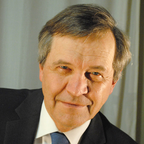

Segregation Reform: Who Thought This Was a Good Idea? (PID131)
Workshop Session
Segregation Reform: Who Thought This Was a Good Idea? (PID131)
3.30pm – 4.30pm EDT, 23 October 2023 ‐ 1 hour
Workshop Session
This panel explores barriers to and enablers of reforming the use of segregation, with a focus on staff perceptions of their environment, their safety and wellbeing, and their leadership. The opening presentation will describe some of the issues driving calls for reform and will discuss selected aspects of correctional culture, operations, and leadership. These comments will be informed by work undertaken in several Canadian jurisdictions. The following two presentations will report on staff and prisoner reactions to specific change initiatives: one in Canada and one in the USA. All three presentations will conclude with thoughts about how to implement and sustain meaningful change.Speakers
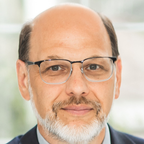
Howard Sapers
Visiting Professor, University of Ottawa, Former Correctional Investigator of Canada, Canada

Dr. Rosemary Ricciardelli
Professor and Research Chair, Memorial University of Newfoundland, Canada

San Diego, California - Juvenile Justice Continuum of Care from Community Interventions to State of the Art Detention Facility (PID081)
Workshop Session
San Diego, California - Juvenile Justice Continuum of Care from Community Interventions to State of the Art Detention Facility (PID081)
3.30pm – 4.30pm EDT, 23 October 2023 ‐ 1 hour
Workshop Session
Speakers

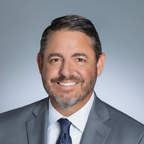
Mike Dempsey
Executive Director, Council of Juvenile Justice Administrators (CJJA), United States
Transforming Incarceration: The Impact of Technology on Daily Life Behind Bars (PID900)
Major Sponsor Presentation
Transforming Incarceration: The Impact of Technology on Daily Life Behind Bars (PID900)
3.30pm – 4.30pm EDT, 23 October 2023 ‐ 1 hour
Major Sponsor Presentation
In this presentation, Jerry Brinegar, the CIO of the New Mexico Corrections Department and former President of the Correctional Technology Association, Shane Epperly, Learning & Development Coordinator for the New Mexico Corrections Department, and Christopher Ditto, the Vice President of Research & Development at ViaPath, will delve into how digital devices and communications shape the day-to-day lives of incarcerated individuals. Through a robust presentation of data and insights gathered from extensive prisoner interviews, they will explore the impact of these digital tools on various aspects of prison life, including overcoming the challenges of culture, distance, language, parenting, self-esteem, and mental health.Speakers

Jerry Brinegar
Chief Information Officer, New Mexico Corrections Department, United States

Christopher Ditto
Vice President of Research & Development, ViaPath Technologies, United States

Shane Epperly
Learning & Development Coordinator, New Mexico Corrections Department, United States
Malaysia Prison Reform Towards the "Civilized Humane Culture Development Center" (CHCDC) (PID051)
Workshop Session
Malaysia Prison Reform Towards the "Civilized Humane Culture Development Center" (CHCDC) (PID051)
4pm – 4.30pm EDT, 23 October 2023 ‐ 30 mins
Workshop Session
The establishment of the Civilized Humane Culture Development Center (CHCDC) is not meant to be the new prison, but instead it involves efforts to improve the existing prison environment to a more humane rehabilitation environment. It requires a large-scale paradigm shift involving various holistic efforts and mechanisms that need to be done systematically. Malaysia Prison Department always believed and have faith that we have been given a great task in order to make the inmates succeed in life after their release and never re offend. Let our correctional system be a part in establishing a civilized and humane culture development center. Having such conference like ICPA is also a good way of sharing and bringing us closer together in our endeavors to implement programs and to upgrade our correctional system.Speakers

Dato Haji Nordin bin Muhamad MD.
Commissioner General of Prison, Malaysia Prison Department, Malaysia
Pretrial Detention Needs Rethink (PID103)
Workshop Session
Pretrial Detention Needs Rethink (PID103)
4pm – 4.30pm EDT, 23 October 2023 ‐ 30 mins
Workshop Session
The longer the time spent in prison without trial, the more the chance of a fair trial fades; evidence goes stale, witnesses move or disappear, and the pressure on people to plead guilty increases as people wish to put an end to the uncertainty over their future. While legal and paralegal assistance is a key part of the answer, there are other remedies also. For example, there may be scope for diverting certain kinds of cases out of the criminal justice system altogether, so that they are dealt with through restorative processes.Speakers

Uplifting Offenders Through Skills Training and Employability Programmes (PID143)
Workshop Session
Uplifting Offenders Through Skills Training and Employability Programmes (PID143)
4pm – 4.30pm EDT, 23 October 2023 ‐ 30 mins
Workshop Session
This sharing covers Singapore Prison Service (SPS)’s and Yellow Ribbon Singapore (YRSG)’s collaborative efforts in providing skills training and education for inmates, with the aim to enhance ex-offenders’ employability potential, promote lifelong learning, skills deepening, and long-term career development. These initiatives include upskilling offenders in digital skills, expanding academic pathways and training academies in prison, as well as allowing offenders to take up employability enhancing programmes while on community-based programmes.Speakers

A Scottish Case Study Using Mandela Rules to Enshrine Human Rights, Mental & Behavioural Wellbeing and Rehabilitation (PID044)
Workshop Session
A Scottish Case Study Using Mandela Rules to Enshrine Human Rights, Mental & Behavioural Wellbeing and Rehabilitation (PID044)
4.30pm – 5pm EDT, 23 October 2023 ‐ 30 mins
Workshop Session
HMP Barlinnie is the largest prison in Scotland, first opened in 1882 and housed the most infamous criminals of the time. Despite various attempts to refurbish the prison, its decaying state took the Scottish Government to announce in 2018 its closure. For the new prison project, the Scottish Prison Service relied on the Mandela rules and a research-based practice to design a human centred facility, radically changing the way corrections are done in Scotland. HMP Glasgow is the new prison in Scotland that is paving the way to show what more can we do to achieve more humane corrections. This is the Scottish Prison Service story of challenges, setbacks, budget constraints, divergent interpretations, and perspectives from all involved in the making of this ambitious, humane and human-centred correctional project.Speakers
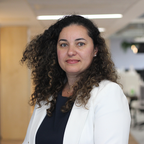
Michael Stoney
Governor, HMP Barlinnie, Scottish Prison Services, Scotland, United Kingdom

Learning Lessons from the UK's Recent Experience of Populist Criminal Justice Policies (PID065)
Workshop Session
Learning Lessons from the UK's Recent Experience of Populist Criminal Justice Policies (PID065)
4.30pm – 5pm EDT, 23 October 2023 ‐ 30 mins
Workshop Session
Speakers
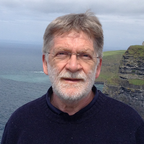
3P: Placement, Productivity and Pay for Foreign Inmates In Reintegration Center (IRC), Malaysia Prison Department (PID023)
Workshop Session
3P: Placement, Productivity and Pay for Foreign Inmates In Reintegration Center (IRC), Malaysia Prison Department (PID023)
4.30pm – 5pm EDT, 23 October 2023 ‐ 30 mins
Workshop Session
Speakers

Paradigm Shift: A Model for Eliminating Restrictive Housing in the United States (PID057)
Workshop Session
Paradigm Shift: A Model for Eliminating Restrictive Housing in the United States (PID057)
4.30pm – 5pm EDT, 23 October 2023 ‐ 30 mins
Workshop Session
Speakers

Kyle Pelletier
Director of Special Programs, Massachusetts Department of Correction, United States
"I even forgot I was in prison" REEDU’s Inclusive Education Methodology for Juvenile Detention: Theory and Practice (PID176)
Workshop Session
"I even forgot I was in prison" REEDU’s Inclusive Education Methodology for Juvenile Detention: Theory and Practice (PID176)
4.30pm – 5pm EDT, 23 October 2023 ‐ 30 mins
Workshop Session
Speakers

Alexander Vollbach
Deputy Director General of Prison and Probation, Bremen Ministry of Justice and Constitution, Germany
A Modified Delphi Exercise to Develop Best Practice Principles for Programs and Services for People Exiting Custody (PID169)
Workshop Session
A Modified Delphi Exercise to Develop Best Practice Principles for Programs and Services for People Exiting Custody (PID169)
4.30pm – 5pm EDT, 23 October 2023 ‐ 30 mins
Workshop Session
Speakers

Professor Elizabeth Sullivan
Pro Vice Chancellor, Research Lead Custodial Health, The University of Newcastle, Justice Health and Forensic Mental Health Network, Australia

Network Group Discussions
Network Group Discussions
Network Group Discussions
8.15am – 9.15am EDT, 24 October 2023 ‐ 1 hour
Network Group Discussions
- Community Corrections Network
- External Prison Oversight and Human Rights Network
- Healthcare Network
- Juveniles Network
- Planning and Design Network
- Research and Development Network
- Staff Training and Development Network
- Technology Solutions Network
- Volunteers Network
IACFP Distinguished Scholar Lecture - "Dignity and Identity Between Individual, Institutional and Societal Interests" (PID220)
Plenary Session
IACFP Distinguished Scholar Lecture - "Dignity and Identity Between Individual, Institutional and Societal Interests" (PID220)
9.30am – 10.30am EDT, 24 October 2023 ‐ 1 hour
Plenary Session
Speakers

Dr. Sonja Snacken
Emeritus Professor of Criminology, Penology and Sociology of Law, Vrije Universiteit Brussel, Belgium
Break and Exhibition
Break and Exhibition
Break and Exhibition
10.30am – 11am EDT, 24 October 2023 ‐ 30 mins
Break and Exhibition
How Connection Can Improve Outcomes for Correctional Staff and Incarcerated Individuals (PID026)
Workshop Session
How Connection Can Improve Outcomes for Correctional Staff and Incarcerated Individuals (PID026)
11am – 11.30am EDT, 24 October 2023 ‐ 30 mins
Workshop Session
Speakers
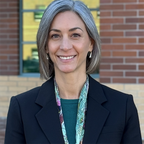
Evaluation of Home Detention in South Australia (PID038)
Workshop Session
Evaluation of Home Detention in South Australia (PID038)
11am – 11.30am EDT, 24 October 2023 ‐ 30 mins
Workshop Session
Speakers

Darian Shephard-Bayly
Executive Director, Government of South Australia Department for Correctional Services, Australia
Redefining the Prison Experience for Young Adult Fathers and their Children (PID088)
Workshop Session
Redefining the Prison Experience for Young Adult Fathers and their Children (PID088)
11am – 11.30am EDT, 24 October 2023 ‐ 30 mins
Workshop Session
Speakers

Kyle Pelletier
Director of Special Programs, Massachusetts Department of Correction, United States
Driving a System-level Transformation of the New Zealand Prison System from a Human Rights Foundation (PID152)
Workshop Session
Driving a System-level Transformation of the New Zealand Prison System from a Human Rights Foundation (PID152)
11am – 11.30am EDT, 24 October 2023 ‐ 30 mins
Workshop Session
- Limited progress towards implementing our Hōkai Rangi strategy (this strategy expresses our commitment to delivering better outcomes with and for Māori; the indigenous people of New Zealand) and prioritising human rights
- Practices around the use of coercive powers, such as strip searches and use of segregation
- Access to wellbeing-focused activities – such as rehabilitation and reintegration services
- Data recording and analysis practices that relate to assurance of performance
- A system-level operating model and reorganisation
- A system-level care framework
- An integrated pathway applied across functional areas that supports a person on their journey through the corrections system.
- A wellbeing measurement tool for people living and working in New Zealand prisons
Speakers

Juvenile Justice and Neurodiversity: Accentuating Multimodal Imperatives and Approaches for Reintegrative Rehabilitation (PID095)
Workshop Session
Juvenile Justice and Neurodiversity: Accentuating Multimodal Imperatives and Approaches for Reintegrative Rehabilitation (PID095)
11am – 11.30am EDT, 24 October 2023 ‐ 30 mins
Workshop Session
The concept of neurodiversity has already taken centerstage in Malaysia, yet the understanding is merely superficial even otherworldly, especially in the juvenile justice platform. With the disproportionately significant prevalence of youth with neurodiversity in juvenile justice system, the concern nuances within those relevant parties, specifically when the issue of youth with neurodivergent spectrum being discussed, on how to deal with them appositely. Neurodivergent juvenile delinquents, aged 14 to 21, need specific and objective-driven interventions with neurodiversity as the focal point, and being penalized even institutionalized in penitentiary without proper and effectual intervention based on their neurodivergent needs somehow ineffectively ensure them to be given rehabilitation needed. There is an exigent demand for reviewing a justifiable and effective rehabilitative program that cater their needs to avoid inefficient and inept interventions being implemented onto them. Rather than dehumanizing and misappropriation in nature of existing correctional approach, proper intervention in accordance with their neurodivergent attributes may lead towards cultivating pro-social environment plus developing social and interpersonal skills towards reintegration. The emphasis will be given onto multiple factors from taxonomical classification, systemic features, risk-needs attributes, and socio-cultural elements. Thus, to have an adequate efficacious method that is ‘neurodivergent-friendly’, from pre-trial assessments to program development analysis, implementation as well as monitoring, to evaluation and fading process for reintegration as a final point may be considered as more proper interventions, not only on the basis of more humanizing approach, but also to ensure their rights for receiving effective need-based and person-oriented rehabilitation are protected and well-looked-after.Speakers

Sayed Mawismi Sayed Mohamad Mustar
Assistant Social Development Officer, Department of Social Welfare Federal Territory of Kuala Lumpur, Malaysia
How a Sustainable Building Embodies Humane Treatment and Promotes Hope and Healing (PID127)
Workshop Session
How a Sustainable Building Embodies Humane Treatment and Promotes Hope and Healing (PID127)
11am – 11.30am EDT, 24 October 2023 ‐ 30 mins
Workshop Session
High performance green buildings can act as therapeutic vessels for programs that heal and restore hope, while helping to helping to restore vibrancy to urban settings and marginalized communities. Our panel will present exemplars of this linkage between sustainability thinking, design excellence, and progressive correctional practices, both completed and underway.
Speakers
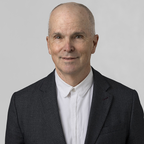

Dr. Robin Timme
Principal and Senior Expert, Falcon Correctional & Community Services Inc., United States

Promoting Humane Corrections: A Call for Compassion in Our Sector (PID901)
Major Sponsor Presentation
Promoting Humane Corrections: A Call for Compassion in Our Sector (PID901)
11am – 12pm EDT, 24 October 2023 ‐ 1 hour
Major Sponsor Presentation
Speakers

Donna Creaven
Director of Corporate Services, Governance and ICT, Irish Prison Service, Ireland

Simon Bonk
Chief Research Officer & Director New Business Development, Telio Management, Canada
"I'm Tired": Understanding Compassion Fatigue, Secondary Traumatic Stress, and Burnout in Correctional Healthcare Staff (PID030)
Workshop Session
"I'm Tired": Understanding Compassion Fatigue, Secondary Traumatic Stress, and Burnout in Correctional Healthcare Staff (PID030)
11.30am – 12pm EDT, 24 October 2023 ‐ 30 mins
Workshop Session
Persons who are justice-involved often present with complex social and healthcare needs in the setting of complex justice systems. The correctional healthcare staff in which they interact have the potential to develop secondary traumatic stress, compassion fatigue, and burnout. While the three terms are conceptually different, all three have the potential to negatively impact staff wellbeing and quality of life. When experienced over time, they can have profound physical, emotional, spiritual and professional effects on the functioning of the team member experiencing them. Leaders of correctional systems that employ healthcare staff can prevent compassion fatigue, secondary traumatic stress, and burnout by creating work environments that foster a culture of teamwork between correctional and healthcare disciplines and positive peer relationships. Interventions that cultivate a sense of self-awareness and teach skills in building resilience and positive coping mechanisms provide means for recognizing secondary traumatic stress, addressing compassion fatigue, and preventing burnout.Speakers

Dr. Tashima Ricks
Correctional Program Specialist, National Institute of Corrections, United States
Strengthening Assessment in Community Corrections and Implementing Treatment Through Public-private Collaboration (PID050)
Workshop Session
Strengthening Assessment in Community Corrections and Implementing Treatment Through Public-private Collaboration (PID050)
11.30am – 12pm EDT, 24 October 2023 ‐ 30 mins
Workshop Session
The Risk-Need-Responsivity (RNR) model is regarded as a fundamental approach to offender treatment in the corrections field, and assessment is a particularly important element to provide effective treatment in accordance with the RNR model. In Japan, assessment by the Case Formulation in Probation/Parole (CFP) tool was officially introduced in January 2021. The CFP is used to sort factors that lead to reoffending or delinquency and factors that promote rehabilitation into eight categories, and probation officers use the results of the assessment to draw charts or timelines to help elaborate the interactive relationships among these factors visually. The CFP helps probation officers identify supervisees’ personal and environmental characteristics that are criminogenic or promote desistance, and they assist probation officers in drafting individually tailored treatment plans. During implementation of supervision, probation officers continuously check the status of these factors and characteristics. Through these measures, probation officers and hogoshi (volunteer probation officers) can strengthen collaboration and develop a common understanding of what works to promote desistance. By helping probation officers identify positive or negative changes in supervisees’ lives and, if necessary, review and revise treatment plans, the CFP is improving probation practice in Japan.Speakers
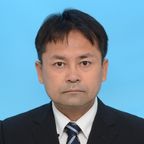
Hiroyuki Watanabe
Deputy Director, General Affairs Divsion, Rehabilitation Bureau, Japan

Mitsuho Yoshimoto
Deputy Director, Supervision Division, Rehabilitation Bureau, Ministry of Justice, Japan
The B.R.A.V.E. Unit: Incarcerated Young Fathers in Massachusetts Prisons (PID173)
Workshop Session
The B.R.A.V.E. Unit: Incarcerated Young Fathers in Massachusetts Prisons (PID173)
11.30am – 12pm EDT, 24 October 2023 ‐ 30 mins
Workshop Session
Speakers


Dr Rhiana Kohl
Executive Director, Office of Strategic Planning and Research, Massachusetts Department of Correction, United States
Creating Human Correctional Environments Through Purposeful Activity: The Efforts of Hong Kong Correctional Services (PID135)
Workshop Session
Creating Human Correctional Environments Through Purposeful Activity: The Efforts of Hong Kong Correctional Services (PID135)
11.30am – 12pm EDT, 24 October 2023 ‐ 30 mins
Workshop Session
The Hong Kong Correctional Services Department (HKCSD) is committed to providing professional and humane correctional services that prioritize offender rehabilitation and reintegration into society. Through purposeful activities, education, and training, HKCSD aims to promote a culture of respect, responsibility, and productivity that positively impacts the overall correctional environment. HKCSD has adopted a two-pronged approach to create more opportunities for upward mobility for rehabilitated persons, focusing on further studies and employment. This approach has contributed to a significant decrease in the recidivism rate in Hong Kong over the past two decades. HKCSD offers market-oriented vocational training programs that equip persons in custody with practical skills and knowledge to facilitate successful reintegration, with high passing rates and employment rates after release. Education programs also promote a sense of purpose and achievement, boosting self-esteem and contributing to a positive self-identity for persons in custody. While young persons in custody are required to take half-day education mandatorily, adult persons in custody are also encouraged to participate voluntarily in self-study or distance learning for tertiary education. To this, HKCSD had signed MOUs with universities in Hong Kong to provide supports in various aspect aiming to foster continual education in prison settings. Additionally, the department provides psychological services to assist young persons in custody to develop positive values and mindsets, strengthening psychological resilience and emotion regulation. Overall, HKCSD's commitment to purposeful activity, education, and training has led to a decline in recidivism rates and has contributed to a safer and more inclusive society.Speakers

Yiu-nam Adrian CHAN
Acting Chief Officer, Hong Kong Correctional Services Department, China
Balancing Human Rights and Community Safety - Reducing Incarceration of People with a Disability (PID172)
Workshop Session
Balancing Human Rights and Community Safety - Reducing Incarceration of People with a Disability (PID172)
11.30am – 12pm EDT, 24 October 2023 ‐ 30 mins
Workshop Session
Speakers

Cath Williams
Chief Operations Officer, Australian Community Support Organisation (ACSO), Australia
Green Corrections; An Oasis Beyond Caged Walls (PID150)
Workshop Session
Green Corrections; An Oasis Beyond Caged Walls (PID150)
11.30am – 12pm EDT, 24 October 2023 ‐ 30 mins
Workshop Session
Speakers
Perceived Occupational Adversity and the Wellbeing of Community Corrections Officers: International Findings (PID022)
Workshop Session
Perceived Occupational Adversity and the Wellbeing of Community Corrections Officers: International Findings (PID022)
12pm – 12.30pm EDT, 24 October 2023 ‐ 30 mins
Workshop Session
This paper presents the findings from a study aimed at increasing our empirical understanding of the wellbeing challenges facing community corrections officers. To gain more detailed insight into this issue, 216 community corrections officers from four countries (Australia, New Zealand, Singapore, and the United States) completed a survey which included the Perceived Occupational Adversity Scale (POAS), a Perceived Stress Scale, and items relating to perceptions of overall professional adversity as well as intentions to leave the profession. The POAS is a 36-item scale which provides a diagnostic indication of the specific six work-related challenges that are most negatively impacting community corrections officers (i.e. client management, risk/safety, perceptions of success, professional acknowledgement, working in a multi-system environment, and dual responsibility). Results indicate that there is a clear relationship across all four countries between POAS scores, perceived stress and the degree to which community corrections officers have considered leaving the profession. Further analysis indicates that although the work-related challenges represented in the POAS were acknowledged as negatively impacting the wellbeing of community corrections officers, the “profile” (i.e. the ranking of the six challenges) differs across countries. In addition to providing an empirical picture of the wellbeing journey for community corrections officers (i.e. POAS > Stress > Intention to Leave Profession), the results of this study also highlight the importance of ensuring that wellbeing intervention programs are informed through a diagnostic tool such as the POAS to ensure that the intervention is responsive to the perceived challenges of the target group.Speakers

Professor Jeffrey Pfeifer
Associate Professor, Swinburne University of Technology, Australia
Assisting Offenders Without Supervision, Especially for Those With Specific Needs (PID007)
Workshop Session
Assisting Offenders Without Supervision, Especially for Those With Specific Needs (PID007)
12pm – 12.30pm EDT, 24 October 2023 ‐ 30 mins
Workshop Session
Community Partnership to Support Families and Children of Offenders and Ex-offenders (PID140)
Workshop Session
Community Partnership to Support Families and Children of Offenders and Ex-offenders (PID140)
12pm – 12.30pm EDT, 24 October 2023 ‐ 30 mins
Workshop Session
This presentation will share local research and evidence-based theories used to inform The Neu Empowerment Model which enables case managers to guide the children and youth to achieve a sense of control. The presentation will also share ongoing and recent initiatives undertaken by SPS, NeuGen, and community partners to involve and support the offenders' families, especially children, in the rehabilitation and reintegration journey, through various initiatives like coordinated referral process and strengthening the community network.
Speakers

Patricia Tung
Director, Strategic Planning Division, Singapore Prison Service, Singapore

Neurodiversity-informed Practices in Prison and Probation Services (PID121)
Workshop Session
Neurodiversity-informed Practices in Prison and Probation Services (PID121)
12pm – 12.30pm EDT, 24 October 2023 ‐ 30 mins
Workshop Session
In this presentation, research is combined with hands-on solutions for more humane neurodiversity-informed practices. The objective is to present current challenges concerning environmental factors and encountering neurodivergent offenders in prison and probation services as well as to introduce possible solutions for how to create neurodiversity-informed practices for more humane correctional environments.Speakers

Katri Mikkola
Doctoral Researcher, Clinical Psychologist Specializing in Neuropsychology, Autism Foundation Finland
Greenspace in Prison and Benefits for Prisoner and Staff Wellbeing (PID215)
Workshop Session
Greenspace in Prison and Benefits for Prisoner and Staff Wellbeing (PID215)
12pm – 12.30pm EDT, 24 October 2023 ‐ 30 mins
Workshop Session
This presentation explores the effects of green space within and near to prisons on the wellbeing of those who live and work in these institutions. Building on extensive qualitative research in the UK and Scandinavia, and reporting recent groundbreaking quantitative analysis within England and Wales. For the first time, it robustly demonstrates that green space improves self-reported wellbeing, and reduces levels of self-harm and violence amongst incarcerated populations, and that it also reduces prison staff sickness absence. The presentation will cover both the theoretical connections between green space and wellbeing, the specific empirical findings of the research, and the policy implications for the design and alteration of prison environments.Speakers

Professor Dominique Moran PhD
Professor in Carceral Geography, University of Birmingham, United Kingdom
Lunch and Exhibition
Lunch and Exhibition
Lunch and Exhibition
12.30pm – 1.30pm EDT, 24 October 2023 ‐ 1 hour
Lunch and Exhibition
Changing Incarceration: A Conversation from the Perspective of Lived Experience (PID189)
Plenary Session
Changing Incarceration: A Conversation from the Perspective of Lived Experience (PID189)
1.30pm – 2.15pm EDT, 24 October 2023 ‐ 45 mins
Plenary Session
Many of today’s prisons are outdated – built for another purpose at another time. When building new prisons, the past is repeated. These old prisons, or new ones with this old design, often make applying the current European penology in practice challenging. With input from persons with lived experience, the panel-style interview will be an exciting and fascinating dive into the benefits of small-scale detention houses from a multitude of perspectives. This interview-style panel invites the audience to reflect on lived experiences, as the format amplifies the voice of formerly incarcerated persons. It is a voice often excluded from dialogue, yet vital to ensuring a humane approach.Speakers



Lara van der Well
Head of the Care & Safety, House Rotterdam Rijnmond (ZVHRR), Netherlands

Humanity in Detention: What About the Voice of People Deprived of Freedom? (PID207)
Plenary Session
Humanity in Detention: What About the Voice of People Deprived of Freedom? (PID207)
2.15pm – 3pm EDT, 24 October 2023 ‐ 45 mins
Plenary Session
When we are seeking to make prisons more humane, we must begin first by understanding the problems and not just the needs. How can the voice of Persons Deprived of Liberty and those who have lived experience in places of detention be incorporated into the understanding of the systemic causes that undermine our collective approach to Humane Corrections? Building off the ICRC’s approach of ensuring the voice of detainees is at the center of our work in places of detention globally, this session will explore how the voice of Persons Deprived of Liberty can be at the center of discussions on various topics related to prison management including:- Prison Planning design and maintenance
- Health care
- Nutrition and food chain management
- Policy and Rules Development and application
Speakers
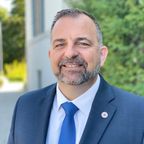
Terry Hackett
Head of Persons Deprived of Liberty Unit, International Committee of the Red Cross (ICRC), Switzerland
Break and Exhibition
Break and Exhibition
Break and Exhibition
3pm – 3.30pm EDT, 24 October 2023 ‐ 30 mins
Break and Exhibition
Co-Design of Healthcare Policies and Guidelines with People Who Are Incarcerated and Corrections Staff (PID156)
Workshop Session
Co-Design of Healthcare Policies and Guidelines with People Who Are Incarcerated and Corrections Staff (PID156)
3.30pm – 4pm EDT, 24 October 2023 ‐ 30 mins
Workshop Session
A novel project to co-design policies and guidelines for testing and linkage to care for Sexually Transmitted and Blood-Borne Infections (STBBIs), such as hepatitis C or HIV, in correctional settings was undertaken in British Columbia (BC), Canada. People who are incarcerated (PWAI) and staff in BC provincial correctional centres participated in the co-design process over a 24 month period. This presentation will outline the framework for co-design that was utilized, along with highlighting the recommendations made in the guidelines that were created.Speakers
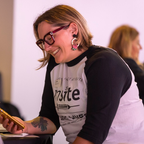
Dr. Sofia Bartlett
Senior Scientist, British Columbia Centre for Disease Control, Canada

Transgender Behind Bars (PID101)
Workshop Session
Transgender Behind Bars (PID101)
3.30pm – 4pm EDT, 24 October 2023 ‐ 30 mins
Workshop Session
Speakers

A Decade of Redevelopment – How Clear Vision and Strong Design Objectives Were Achieved in 4 SA Corrections Projects (PID078)
Workshop Session
A Decade of Redevelopment – How Clear Vision and Strong Design Objectives Were Achieved in 4 SA Corrections Projects (PID078)
3.30pm – 4pm EDT, 24 October 2023 ‐ 30 mins
Workshop Session
Speakers


Darian Shephard-Bayly
Executive Director, Government of South Australia Department for Correctional Services, Australia
Access Unlocked: Improving Health Care Access in Adult Correctional Settings in NSW Australia (PID025)
Workshop Session
Access Unlocked: Improving Health Care Access in Adult Correctional Settings in NSW Australia (PID025)
3.30pm – 4pm EDT, 24 October 2023 ‐ 30 mins
Workshop Session
Speakers

Wendy Hoey
Chief Executive, Justice Health and Forensic Mental Health Network NSW, Australia
Custodial Transitions: Are the Needs of Young Adults Being Met in Ireland? (PID032)
Workshop Session
Custodial Transitions: Are the Needs of Young Adults Being Met in Ireland? (PID032)
3.30pm – 4pm EDT, 24 October 2023 ‐ 30 mins
Workshop Session
Speakers

Providing Opportunities for Global Collaboration: The Supervision Around the World Project (PID073)
Workshop Session
Providing Opportunities for Global Collaboration: The Supervision Around the World Project (PID073)
3.30pm – 4pm EDT, 24 October 2023 ‐ 30 mins
Workshop Session
The SAW Project identifies countries offering community supervision services, documents current practices, builds relationships with key administrators, and is creating an interactive internet repository for gleaned program information. With positive practices in operation, models should not need to be reinvented across borders, but rather shared. We are building a repository of data and supportive practice details that can improve lives worldwide. Examples of exciting and effective community corrections programs will be offered from Japan, Algiers, and the Czech Republic showing how we can learn from each other.
Speakers

Developing an Evidence-Based Application to Improve Wellbeing and Reduce Incidents of Suicide and Self-Harm in Prisons (PID902)
Major Sponsor Presentation
Developing an Evidence-Based Application to Improve Wellbeing and Reduce Incidents of Suicide and Self-Harm in Prisons (PID902)
3.30pm – 4.30pm EDT, 24 October 2023 ‐ 1 hour
Major Sponsor Presentation
AIM analyses data collected from prisoner’s self-service interactions: dynamic factors such as visits, phone use, shop, work, education or other purposeful activities, data collected from various prisoner questionnaires and proven static factors identified from empirical research (i.e. age or previous self-harm). Any deviation in an individual’s daily routine is identified and represented on a scale from low to high through intuitive traffic light indicators with red signalling a need for intervention.
Speakers
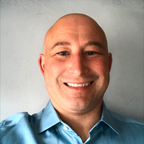
Steven Doggett
Business Development Consultant - Probation Systems, Unilink Software Ltd, United Kingdom
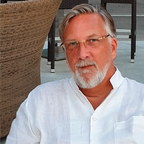
Reducing Violence in Prisons: Involving the Prisoner Voice and Experience (PID186)
Workshop Session
Reducing Violence in Prisons: Involving the Prisoner Voice and Experience (PID186)
4pm – 4.30pm EDT, 24 October 2023 ‐ 30 mins
Workshop Session
Speakers

Natalie Parrett CPsychol, AFBPsS
Director of Psychological Services, Justice and Immigration, Serco, United Kingdom

Digital Desistance and Gender Specific Digital Rehabilitation for Offenders (PID055)
Workshop Session
Digital Desistance and Gender Specific Digital Rehabilitation for Offenders (PID055)
4pm – 4.30pm EDT, 24 October 2023 ‐ 30 mins
Workshop Session
Gender Specific Digital Rehabilitation develops a gender specific rehabilitation model for women offenders including substance abuse rehabilitation and reducing recidivism. Women and non-binary offenders have a heightened need for support since they aren’t recognized in corrections. Digital rehabilitation aims to enhance women’s possibilities to participate. The digital learning platform includes topics like security, self-esteem, social & life skills, boundaries, respect & social support. Digital Desistance strengthens offenders’ participation in a digitalized society and improves their digital skills. Digital rehabilitation platform is co-developed with the offenders and experts by experience. The project also develops the skills and attitudes of professionals and experts by experience working with offenders in digital desistance. The theoretical background is in Desistance & Good Lives Model (GLM). These projects of Silta Rehabilitation (NGO) are funded by the European Social Fund.Speakers

Kirsi Riihijärvi
Project Manager, NGO Silta Rehabilitation (Silta-Valmennusyhdistys ry), Finland
The Nightmare of Sleep in Prison (PID171)
Workshop Session
The Nightmare of Sleep in Prison (PID171)
4pm – 4.30pm EDT, 24 October 2023 ‐ 30 mins
Workshop Session
In this workshop, Michele Deitch and Alycia Welch, authors of the soon-to-be released report “The Nightmare of Sleep in Prison: How changing sleep practices can promote a healthier, safer, and more humane correctional environment”, will identify ways that routine sleep practices in prison are dehumanizing, cause harm to people in custody, and contribute to safety issues and poor health outcomes. Drawing on examples of ways that some corrections agencies in the U.S. and in other countries have improved conditions and practices at their facilities, the presenters will recommend steps that corrections agencies and policy makers could take to promote healthy sleep for people in custody and, in so doing, better respect the humanity and dignity of people behind bars, achieve better health outcomes, and support a safer institutional environment.Speakers

Prof. Michele Deitch
Director, Prison and Jail Innovation Lab at the University of Texas at Austin, USA

Alycia Welch
Associate Director, Prison and Jail Innovation Lab, Lyndon B. Johnson School of Public Affairs, Univ. of Texas at Austin, USA
Humane Youth Justice: The Challenge of Change (PID174)
Workshop Session
Humane Youth Justice: The Challenge of Change (PID174)
4pm – 4.30pm EDT, 24 October 2023 ‐ 30 mins
Workshop Session
This presentation explores the challenge of creating change in youth justice practice and administration. It specifically examines the Australian context, and the calls for change made by the 2018 Royal Commission into Youth Detention and Child Protection in the Northern Territory. The Royal Commission involved considerable research and consultation that provided a clear rationale and evidence base for change to a less institutional, and more humane and decentralised, model of youth justice. It was promised as a watershed moment both for the Northern Territory, but also other state jurisdictions across the country. However, rather than change, what was observed across Australian youth jurisdictions was a period of real and significant instability and unrest. This presentation documents this unrest and examines why, rather than being a catalyst for change, the Royal Commission led to a retreat and seeming regression in practice. To do this, it draws on research about youth justice staff, the psychology of young people within these facilities, and research that models how people and organisations respond to uncertainty. An argument is made for an alternative positive dismantling approach to creating change within youth justice systems that centres the key role of the relationships between young people and those that care for them.Speakers
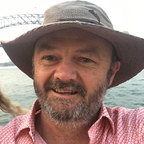
Pūwhakamua: A Tikanga Māori Rehabilitation Success in Reducing Offending and Improving Reintegration in New Zealand (PID021)
Workshop Session
Pūwhakamua: A Tikanga Māori Rehabilitation Success in Reducing Offending and Improving Reintegration in New Zealand (PID021)
4pm – 4.30pm EDT, 24 October 2023 ‐ 30 mins
Workshop Session
Its success is attributed to its emphasis on tikanga Māori principles, which prioritize relationships, respect, and responsibility. The programme's success has also been recognized by the New Zealand government, which has invested in expanding the programme to other regions. This expansion is expected to have a significant impact on reducing recidivism rates and improving the health, wellbeing, and quality of life for individuals who have been incarcerated.
Speakers
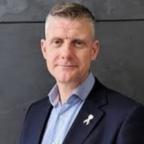

Tremain Whatarau-Gray
Supervisor Cultural Units, Auckland South Correctional Facility, New Zealand
Ask Me First: Participant-Led Research to Explore How an Irish Prison Environment Relates to Female Well-Being (PID072)
Workshop Session
Ask Me First: Participant-Led Research to Explore How an Irish Prison Environment Relates to Female Well-Being (PID072)
4.30pm – 5pm EDT, 24 October 2023 ‐ 30 mins
Workshop Session
The purpose of this specific presentation is to offer experience of participant led research with the women involved in the study. It will explore the innovative research opportunities that have emerged, such as photo-elicitation, creative writing and art (Richard and Lahman 2015). It will also document the challenges, for example, communication within the prison system, conflict between participants and the importance of a neutral position between staff and prisoner relationships (Van Eyk et al 2020). My experience will be valuable to future researchers wishing to navigate access into prison environments.
The research is ongoing; nonetheless an evaluation will be offered of the process to date and I will share some personal reflections about the emotionally turbulent nature of conducting a 2-year case study with incarcerated women, many of whom are mothers like myself.
Speakers

Towards Gender Parity: Empowering Women in Corrections and Peacekeeping (PID129)
Workshop Session
Towards Gender Parity: Empowering Women in Corrections and Peacekeeping (PID129)
4.30pm – 5pm EDT, 24 October 2023 ‐ 30 mins
Workshop Session
Gender parity for uniformed peacekeepers is a main goal for the United Nations Department of Peace Operations. This presentation will demonstrate the innovative ways in which the United Nations have tackled gender-related barriers impeding women from participating fully, equally and meaningfully to peace operations’ corrections efforts. Téné Maimouna Zoungrana, a rapid intervention officer from Burkina Faso deployed to the United Nations peace operation in the Central African Republic will share her personal success story working in a peace operation context which was not initially designed to accommodate women. The presentation will expand on how humane corrections systems require diverse teams who reflect the population they serve and who bring diverse perspectives, backgrounds and skillsets to the table to ensure operational effectiveness. The speakers from the United Nations Department of Peace Operations will demonstrate how the implementation of the Uniformed Gender Parity Strategy has lead to tangible results and what challenges still lie ahead of creating truly inclusive and enabling working environments for corrections officers in peacekeeping.Speakers

Téné Maimouna Zoungrana
Corrections Officer, United Nations Multidimensional Integrated Stabilisation Mission in the Central African Republic (MINUSCA), Central African Republic
Thanujah Yogarajah
Design for Health and Wellbeing: Space and Interior Design in Detention, Special Residential Youth Homes, and Prisons (PID201)
Workshop Session
Design for Health and Wellbeing: Space and Interior Design in Detention, Special Residential Youth Homes, and Prisons (PID201)
4.30pm – 5pm EDT, 24 October 2023 ‐ 30 mins
Workshop Session
The physical environment is an active agent in the rehabilitation/habilitation. The environment can support the treatment alliance between the client and staff, not least by conveying a feeling of trust, security and self-determination. It is also reasonable to assume that the environment itself can reinforce or "redirect" and change the identity we carry. Incarceration comes with many losses. The question is whether the environment can compensate for the losses, in any case not amplify them. Despite the limited living conditions provided in institutional care, there are good opportunities through the design of the environment to create well-being.Speakers
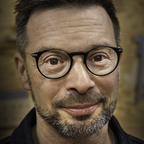
Dr Franz James
Assistant Professor, HDK-Valand Academy of Art and Design, University of Gothenburg, Sweden
Computer-Aided Detection (CAD): Using Artificial Intelligence to Provide Humane Treatment in Haitian Prisons (PID199)
Workshop Session
Computer-Aided Detection (CAD): Using Artificial Intelligence to Provide Humane Treatment in Haitian Prisons (PID199)
4.30pm – 5pm EDT, 24 October 2023 ‐ 30 mins
Workshop Session
Speakers


Children Have Human Rights Too: A Comparative Analysis of Correctional Service Staff Training in EU Youth Justice (PID166)
Workshop Session
Children Have Human Rights Too: A Comparative Analysis of Correctional Service Staff Training in EU Youth Justice (PID166)
4.30pm – 5pm EDT, 24 October 2023 ‐ 30 mins
Workshop Session
Speakers

Claire Machan
Rehabilitation, Reintegration and Community Portfolio Coordinator, IPS Innovative Prison Systems, Portugal
They All Come Out: Mapping the Desistence Journeys of 200 Men Leaving HM Prison Bullingdon over 18 Months (PID077)
Workshop Session
They All Come Out: Mapping the Desistence Journeys of 200 Men Leaving HM Prison Bullingdon over 18 Months (PID077)
4.30pm – 5pm EDT, 24 October 2023 ‐ 30 mins
Workshop Session
In collaboration with the Ministry of Justice’s pilot project ‘RESTART Thames Valley', I investigate the resettlement journeys of 200 prison-leavers released from HM Prison Bullingdon over 18 months. I have conducted ethnographic data collection through a combination of participant observation, and unstructured, sequential interviews with prison leavers both pre- and post-release. This presentation maps the four most common, heterogeneous and dynamic patterns of desistence pathways observed in my sample.Speakers

Opening and Welcome
Plenary Session
Opening and Welcome
8.45am – 8.50am EDT, 25 October 2023 ‐ 5 mins
Plenary Session
Speakers

Kathleen Van De Vijver
Spokeswoman Belgian Prison Service, Coordinator International Projects & Cellmade Prison Labour, Belgian Prison Service, Belgium
Regional Day Welcome and Introduction
Plenary Session
Regional Day Welcome and Introduction
8.50am – 9.20am EDT, 25 October 2023 ‐ 30 mins
Plenary Session
Speakers
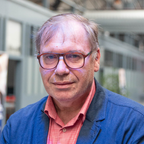
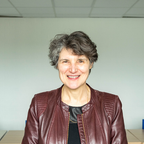
Annie Devos
Director-General, Houses of Justice, Wallonia-Brussels Federation. Vice-President, Council of Penological Cooperation (PC-CP), Council of Europe. Vice-President, Confederation of European Probation (CEP), Belgium
Towards Improving Humane Detention and Re-integration: New Roles in a New Prison Culture (PID012)
Plenary Session
Towards Improving Humane Detention and Re-integration: New Roles in a New Prison Culture (PID012)
9.20am – 9.50am EDT, 25 October 2023 ‐ 30 mins
Plenary Session
Speakers
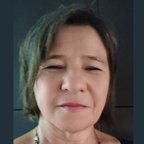

Small Scale Detention: The First Detention House in Belgium (PID003)
Plenary Session
Small Scale Detention: The First Detention House in Belgium (PID003)
9.50am – 10.30am EDT, 25 October 2023 ‐ 40 mins
Plenary Session
The detention house is a new model of punishment with focus on society-oriented rehabilitation, in a positive environment. The residents are offered more autonomy, responsibility and live together in living groups.Speakers
Laurence Nibelle
Director, Detention Administration Department, Project Leader, Detention House, Belgium Prison Service - Justice Department
Break and Exhibition
Break and Exhibition
Break and Exhibition
10.30am – 11am EDT, 25 October 2023 ‐ 30 mins
Break and Exhibition
Life After Custody: How to Make it Work? A Belgian Approach of Probation and Community Services (PID206)
Workshop Session
Life After Custody: How to Make it Work? A Belgian Approach of Probation and Community Services (PID206)
11am – 11.30am EDT, 25 October 2023 ‐ 30 mins
Workshop Session
An insight into the probation and victim support by the Houses of Justice, the Belgian probation services.Speakers

Annie Devos
Director-General, Houses of Justice, Wallonia-Brussels Federation. Vice-President, Council of Penological Cooperation (PC-CP), Council of Europe. Vice-President, Confederation of European Probation (CEP), Belgium
Hans Dominicus
Head of Department, Houses of Justice, Agency Justice and Enforcement, Flemish Authority, Belgium
Together, Learning and Thinking about Punishment (PID020)
Workshop Session
Together, Learning and Thinking about Punishment (PID020)
11am – 11.30am EDT, 25 October 2023 ‐ 30 mins
Workshop Session
In this workshop we discuss how university students, prison officers and incarcerated learners can be equally seen as students in a semester-course on penology. This workshop shows how transformative learning can take place behind prison walls, and zooms in on the experiences of all participants.Speakers


Boxing Behind Bars (PID113)
Workshop Session
Boxing Behind Bars (PID113)
11am – 11.30am EDT, 25 October 2023 ‐ 30 mins
Workshop Session
Speakers
Ibrahim Emsallak
General Coordinator, Vlaamse Boks Liga, Flemish Boxing League, Belgium
Drugs and Detention: When Justice and Public Health Come Together to Develop a Model of Care for Incarcerated Users (PID054)
Workshop Session
Drugs and Detention: When Justice and Public Health Come Together to Develop a Model of Care for Incarcerated Users (PID054)
11am – 11.30am EDT, 25 October 2023 ‐ 30 mins
Workshop Session
Speakers
Educational Center Wortel: A Complicated Marriage Between Restorative Purposes and a Prison System (PID029)
Workshop Session
Educational Center Wortel: A Complicated Marriage Between Restorative Purposes and a Prison System (PID029)
11am – 11.30am EDT, 25 October 2023 ‐ 30 mins
Workshop Session
A nuanced story about the successes and challenges we faced, and are still facing, concerning the organization of education and activities for detainees. In this lecture there will be also a strong focus on how the meaningful use of the time spent in detention can contribute to make detention more bearable and how it minimalizes the chances of recidivism.Speakers

Ann Boks
Management support, Prison management and detainee case manager, Prison of Wortel, Federal Justice Departement, Belgium
Documentary Series about Detention as a Lever for Change (PID205)
Workshop Session
Documentary Series about Detention as a Lever for Change (PID205)
11am – 11.30am EDT, 25 October 2023 ‐ 30 mins
Workshop Session
Documentary series about detention as a lever for change.Speakers

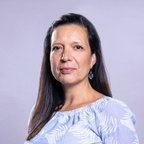

Kathleen Van De Vijver
Spokeswoman Belgian Prison Service, Coordinator International Projects & Cellmade Prison Labour, Belgian Prison Service, Belgium
The Complexity of Re-entry Among Incarcerated People in Flanders and Brussels (Be.): Insights from the BRuG-project Survey (PID125)
Workshop Session
The Complexity of Re-entry Among Incarcerated People in Flanders and Brussels (Be.): Insights from the BRuG-project Survey (PID125)
11.30am – 12pm EDT, 25 October 2023 ‐ 30 mins
Workshop Session
Speakers
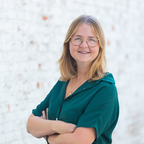

Dorien Brosens
Assistant professor, Postdoctoral researcher, Department of Educational Sciences, Research group PArticipation And Learning in Detention (PALD), Vrije Universiteit Brussel, Belgium
Teaching the Use of the Same Personality Type Tool to Staff and Inmates to Reinforce Dynamic Security Opportunities (PID148)
Workshop Session
Teaching the Use of the Same Personality Type Tool to Staff and Inmates to Reinforce Dynamic Security Opportunities (PID148)
11.30am – 12pm EDT, 25 October 2023 ‐ 30 mins
Workshop Session
The Enneagram has been used as a (scientifically validated) personality typology tool with prison staff to promote self-awareness, communication, emotional and reactive management, all with the aim of increasing compliance with ethical expectations and interpersonal skills. The same enneagram tool has been offered to groups of inmates in prisons with the collaboration of the American EPP program (enneagram prison project) to promote the same objectives of self-awareness and emotional health in addition to addressing the issue of trauma and addictions. This use of the same self-awareness tool with staff and inmates leads to many opportunities to foster a more peaceful climate of dynamic security within the prison.Speakers
Jean-Philippe Koopmansch
Prison Warden, Prison de Marche-en-Famenne, DGEPI, SPF Justice, Belgium
Sport in Prison: More than an Individual Tool for Social Reintegration; A Collective Tool for Social Cohesion (PID064)
Workshop Session
Sport in Prison: More than an Individual Tool for Social Reintegration; A Collective Tool for Social Cohesion (PID064)
11.30am – 12pm EDT, 25 October 2023 ‐ 30 mins
Workshop Session
Speakers

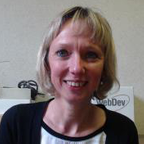
Michèle Meulemans
Conseiller Director, Prison de Leuze-en-Hainaut, SPF Justice, DGEPI, Belgium
Ten Years of PPP in Belgian Prisons: What Opportunities for the Reintegration of Prisoners and their Living Conditions? (PID204)
Workshop Session
Ten Years of PPP in Belgian Prisons: What Opportunities for the Reintegration of Prisoners and their Living Conditions? (PID204)
11.30am – 12pm EDT, 25 October 2023 ‐ 30 mins
Workshop Session
This presentation reviews the first ten years of public-private partnership for the management of new Belgian prisons, attempting to highlight the opportunities arising from these partnerships, but also the few difficulties encountered and which should serve as a basis for reflection in the future.Speakers
Learning Inside Out (LIO) Offers Education and Study Counselling to Inmates in All Prisons in Flanders and Brussels (PID097)
Workshop Session
Learning Inside Out (LIO) Offers Education and Study Counselling to Inmates in All Prisons in Flanders and Brussels (PID097)
11.30am – 12pm EDT, 25 October 2023 ‐ 30 mins
Workshop Session
Speakers
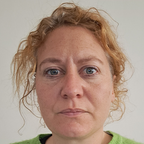
Good Practices in a Bad Environment (PID060)
Workshop Session
Good Practices in a Bad Environment (PID060)
11.30am – 12pm EDT, 25 October 2023 ‐ 30 mins
Workshop Session
The presentation focuses first on the as is-situation, which is no good news show but an honest representation of the reality in an old understaffed, overpopulated prison. To then zoom in on how we make the best of it, how we succeed in keeping the peace, both amongst inmates as amongst staff.Speakers

How Can We Support Correctional Officer Wellbeing? Mixed Method Results and Recommendations (PID098)
Workshop Session
How Can We Support Correctional Officer Wellbeing? Mixed Method Results and Recommendations (PID098)
12pm – 12.30pm EDT, 25 October 2023 ‐ 30 mins
Workshop Session
Speakers

Olivia Miller
PhD Candidate, Research Assistant, Queensland University of Technology, Australia
How, Why, for Whom and Under Which Circumstances Do Participatory Music Programs in Prison Work: Preliminary Findings (PID014)
Workshop Session
How, Why, for Whom and Under Which Circumstances Do Participatory Music Programs in Prison Work: Preliminary Findings (PID014)
12pm – 12.30pm EDT, 25 October 2023 ‐ 30 mins
Workshop Session
Participatory music programs in prison gained popularity in recent years due to their contribution to more humane correctional facilities. Previous research highlights the outcomes of these programs for incarcerated participants, like managing and expressing emotions, or self-development. However, a deeper understanding on how, why, for whom and under which circumstances these outcomes emerge remains under investigated. To respond to this research gap, this ongoing PhD research aims to develop a better understanding of the underlying mechanisms (e.g. providing a safe space, applying a Freirean approach) and contextual factors (e.g. the prison context, the background of the music facilitator) behind participatory music programs in prison, that trigger (un)intended outcomes. Based on preliminary findings from a realist synthesis, theory-gleaning interviews with international key stakeholders such as academics and music program developers, and participant observations of participatory music programs in prison, initial program theories are developed. An example of such an initial program theory about participatory music programs in prison is: It is expected that, if a shared goal [mechanism] is established during the participatory music program in prison, the self-confidence of incarcerated participants increases [outcome 1]. Participants experience a sense of accomplishment [outcome 2], which facilitates their self-development [outcome 3]. This research is of added value for practice and academia since it provides deeper and richer information on how to deal with the challenges related to organizing participatory music programs in a prison setting.Speakers


Dorien Brosens
Assistant professor, Postdoctoral researcher, Department of Educational Sciences, Research group PArticipation And Learning in Detention (PALD), Vrije Universiteit Brussel, Belgium

Geert Vandermeersche
Assistant Professor, Brussels Research Centre on Innovation in Learning & Diversity (BILD), Vrije Universiteit Brussel, Belgium
Multi-agency Approach of Radicalized Inmates in Belgium (PID108)
Workshop Session
Multi-agency Approach of Radicalized Inmates in Belgium (PID108)
12pm – 12.30pm EDT, 25 October 2023 ‐ 30 mins
Workshop Session
The working of three main services involved in addressing the phenomenon of radicalization, extremism and terrorism in Belgian Prison Service will be presented. In accordance to the Federal Strategy on this phenomenon, we work according to a multi-agency approach with both focus on security as well as socio-prevention and reintegration. The common finality as well as the specificity of the different services will be illustrated. We will also present a fictional case, following the moment of incarceration until release.Speakers

Nico Braspenning
Central Psychosocial Service Extremism, Belgian Prison Service, Belgium

Gert Vanherk
Policy coordinator assistance and services, Vlaams Agentschap Justitie en Handhaving, Belgium
Bridges Outside with Cellmade (PID203)
Workshop Session
Bridges Outside with Cellmade (PID203)
12pm – 12.30pm EDT, 25 October 2023 ‐ 30 mins
Workshop Session
Prison labor - corporate support - risk assessment.Speakers
Tine Verhenne
Deputy Assessor, Sentence Execution Court, Belgium Prison Services, Belgium
Lunch and Exhibition
Lunch and Exhibition
Lunch and Exhibition
12.30pm – 1.30pm EDT, 25 October 2023 ‐ 1 hour
Lunch and Exhibition
The Implementation of Good Lives Model in Daily Life and Rehabilitation of Offenders (PID001)
Workshop Session
The Implementation of Good Lives Model in Daily Life and Rehabilitation of Offenders (PID001)
1.30pm – 2pm EDT, 25 October 2023 ‐ 30 mins
Workshop Session
The good lives model is the additional model to the Risk-Need-Responsivity model. It motivates residents to change their way of life and strive for desistance, by aiming for more well-being.Speakers
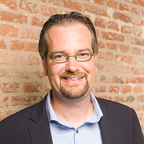
Stijn Vandevelde
Professor, Department of Special Needs Education, Ghent University, Belgium

Preventing Aggression: Prevention Strategies and Training of Staff Members in High-security Forensic Psychiatry (PID191)
Workshop Session
Preventing Aggression: Prevention Strategies and Training of Staff Members in High-security Forensic Psychiatry (PID191)
1.30pm – 2pm EDT, 25 October 2023 ‐ 30 mins
Workshop Session
Speakers
When Care Takes it Over: Detainees Growing Older in Dignity (PID217)
Workshop Session
When Care Takes it Over: Detainees Growing Older in Dignity (PID217)
1.30pm – 2pm EDT, 25 October 2023 ‐ 30 mins
Workshop Session
In the second part, we will present the way we contain aged inmates with a high care profile in a context of an aged infrastructure with a shortage of professional careworkers. We will first explain how we came to install this exclusive wing for aged inmates.
Speakers
Development of a BelRAI Screener Detention for Correctional Facilities (PID031)
Workshop Session
Development of a BelRAI Screener Detention for Correctional Facilities (PID031)
1.30pm – 2pm EDT, 25 October 2023 ‐ 30 mins
Workshop Session
The identification of the items of the instrument is based on (1) a scoping review, (2) four expert panels with in total 10 experts from the field, and (3) examination of the interRAI assessment system to select interRAI-items that map the care needs that resulted from the scoping review and expert panels.
The BelRAI Screener Detention includes four sections: (1) medical past/history, (2) physical health, (3) mental health indicators and behaviours, and (4) social care needs. The BelRAI Screener Detention will be completed by care providers based on information they get from the person in custody and prison staff. The psychometric properties, and the suitability, feasibility and acceptability of the BelRAI Screener Detention will be tested in three Belgian prisons.
Speakers

Dr. Inge Jeandarme
Forensic psychiatrist, OPZC Rekem, Forensic Psychiatric Centre Antwerp, KU Leuven, Belgium
Prison Foodways in Oudenaarde (PID061)
Workshop Session
Prison Foodways in Oudenaarde (PID061)
1.30pm – 2pm EDT, 25 October 2023 ‐ 30 mins
Workshop Session
Speakers
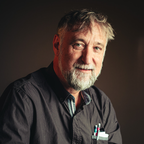

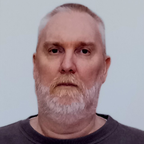
The Practice and Promise of Peer Programs in Prison (PID045)
Workshop Session
The Practice and Promise of Peer Programs in Prison (PID045)
1.30pm – 2pm EDT, 25 October 2023 ‐ 30 mins
Workshop Session
Through the perspective of realist methodology, we reviewed 29 international articles and reports on peer programs in prison to gain insight into its’ outcomes, the underlying mechanisms and the conditions under which such programs are likely to be effective. Peer programs have potential benefits for peer workers (e.g. desistance, improved knowledge/skills), peer recipients (e.g. desistance, improved mental health), and prisons (e.g. improved atmosphere, fewer institutional infractions). The success of peer programs is contingent on a number of factors on micro-level (i.e. motivation of peer workers, recruitment requirements), exo-level (i.e. institutional prison profile, training/hands-on experiences of peer workers, institutional buy-in), and macro-level (i.e. government support, resources). Moreover, we identified different underlying mechanisms to optimize the effectiveness of peer programs, such as supporting peer workers, or developing human relationships based on trust and equality. The incorporation of a realist science perspective to unravel the outcomes of peer programs in prison, as well as the underlying contextual factors and mechanisms, provides valuable insights for practitioners and policy makers in designing and implementing effective programs.
Speakers

Dorien Brosens
Assistant professor, Postdoctoral researcher, Department of Educational Sciences, Research group PArticipation And Learning in Detention (PALD), Vrije Universiteit Brussel, Belgium
Cooperation as an Answer to the Complexity of Reintegration of Prisoners (PID119)
Workshop Session
Cooperation as an Answer to the Complexity of Reintegration of Prisoners (PID119)
2pm – 2.30pm EDT, 25 October 2023 ‐ 30 mins
Workshop Session
The aim of these ESF projects is to search for a way to strengthen/improve the cooperation within our network of help and services to (ex-)prisoners in and around the Flemish and Brussels prisons and to arrive at a conceptual cooperation model. The actions contribute directly and/or indirectly to the reintegration and activation opportunities of inmates. The collaboration between different partners from our network, constitutes a major asset of these projects.
The projects have been running for about 7 months and we can already share some lessons learned and commonalities from the analysis phases of the projects. We would like to give an overview and state of play of the different projects and will take a critical look at the challenges these ESF projects present.
Speakers
Dynamic Security – Yes, We Can! A Lithuanian – Norwegian Partnership to Improve Quality of Lithuanian Prison Service (PID114)
Workshop Session
Dynamic Security – Yes, We Can! A Lithuanian – Norwegian Partnership to Improve Quality of Lithuanian Prison Service (PID114)
2pm – 2.30pm EDT, 25 October 2023 ‐ 30 mins
Workshop Session
Speakers
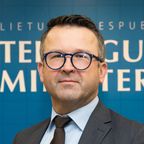

Community Based Health in Detention - A Model to Improve Health and Wellbeing for People Deprived of their Liberty (PID134)
Workshop Session
Community Based Health in Detention - A Model to Improve Health and Wellbeing for People Deprived of their Liberty (PID134)
2pm – 2.30pm EDT, 25 October 2023 ‐ 30 mins
Workshop Session
Speakers

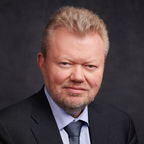
Jan-Erik Sandlie
Deputy Director General, The Directorate of the Norwegian Correctional Service, Norway

Dr Graham Betts-Symonds
Director, Community Based Health in Justice, Global Hub for Community Based Health in Detention, Irish Red Cross, Irish Prison Service, Ireland

Violence Risk Screening in the Prison Setting: Improving Prison Safety and Reducing Violent Recidivism (PID079)
Workshop Session
Violence Risk Screening in the Prison Setting: Improving Prison Safety and Reducing Violent Recidivism (PID079)
2pm – 2.30pm EDT, 25 October 2023 ‐ 30 mins
Workshop Session
Speakers

Marjam Smeekens
Researcher, PhD candidate, The Netherlands Institute for Forensic Psychiatry and Psychology (NIFP), Netherlands

Dr. Michiel De Vries Robbé
Senior Researcher, Amsterdam University Medical Center, Netherlands
Humane Corrections: A New Approach for Food in Prison (PID211)
Workshop Session
Humane Corrections: A New Approach for Food in Prison (PID211)
2pm – 2.30pm EDT, 25 October 2023 ‐ 30 mins
Workshop Session
In 2022, our contract for food in prisons expired. In the previous years, we reconsidered our approach to prison food. Since European procurement laws force our organisation to limit the length of our contracts, the companies have a possibility to apply to a public tender, in this case every eight years. This gives our organisation the possibility to improve our food service and correct mistakes made in the past.
Speakers
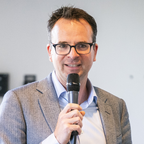
Drs. Wolter van der Vlist
Policy advisor on procurement, Dutch Custodial Institution Agency, Netherlands
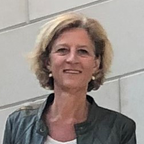

Peer-led Intervention to Support Clients to Vacate Warrants Following Release from Prison: A Case Study from Canada (PID132)
Workshop Session
Peer-led Intervention to Support Clients to Vacate Warrants Following Release from Prison: A Case Study from Canada (PID132)
2pm – 2.30pm EDT, 25 October 2023 ‐ 30 mins
Workshop Session
Peer-led interventions can play a critical role in supporting clients to navigate the criminal legal system, including the process of vacating warrants. Individuals who face having a warrant are at a higher risk of overdosing and increasing the barriers to access community services. The positive reception of this peer-led warrant program has led to increasing demands to provide this warrant program to the surrounding communities.Speakers


Michigan Department of Corrections Vocational Village Overview (PID124)
Workshop Session
Michigan Department of Corrections Vocational Village Overview (PID124)
2.30pm – 3pm EDT, 25 October 2023 ‐ 30 mins
Workshop Session
Speakers

Heidi Washington
Director of Michigan Department of Corrections, Board Member of ICPA, United States
Safety Dilemmas in Prison Management: Findings from Research on Prison Violence in the Netherlands (PID087)
Workshop Session
Safety Dilemmas in Prison Management: Findings from Research on Prison Violence in the Netherlands (PID087)
2.30pm – 3pm EDT, 25 October 2023 ‐ 30 mins
Workshop Session
Speakers

Dr Esther van Ginneken
Associate Professor in Criminology, Leiden University, Netherlands
Triangle: An International Collaboration (Erasmus+) and Education Project in Prisons (PID010)
Workshop Session
Triangle: An International Collaboration (Erasmus+) and Education Project in Prisons (PID010)
2.30pm – 3pm EDT, 25 October 2023 ‐ 30 mins
Workshop Session
An international collaboration (Erasmus+ project) where we try to make the digital world accessible in a secure manner by using a secure online learning platform.Speakers
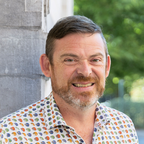

Aurelia Bijnens
Education Coordinator of the prisons of Bruges and Ruiselede, Vocvo vzw, Belgium
The Risk Screener-Youth. A Novel Tool for Easy and Efficient Evaluation of Recidivism Risk in Juveniles and Young Adults (PID076)
Workshop Session
The Risk Screener-Youth. A Novel Tool for Easy and Efficient Evaluation of Recidivism Risk in Juveniles and Young Adults (PID076)
2.30pm – 3pm EDT, 25 October 2023 ‐ 30 mins
Workshop Session
Speakers

Dr. Michiel De Vries Robbé
Senior Researcher, Amsterdam University Medical Center, Netherlands
Supporting Humane Corrections Through the Provision of Books, Libraries and Reading to People Deprived of Liberty (PID019)
Workshop Session
Supporting Humane Corrections Through the Provision of Books, Libraries and Reading to People Deprived of Liberty (PID019)
2.30pm – 3pm EDT, 25 October 2023 ‐ 30 mins
Workshop Session
Speakers
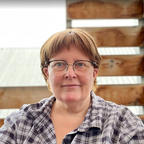
Providing Cell Phones and Peer Support is Effective at Engaging People After Release from Custody in to Hepatitis C Care (PID155)
Workshop Session
Providing Cell Phones and Peer Support is Effective at Engaging People After Release from Custody in to Hepatitis C Care (PID155)
2.30pm – 3pm EDT, 25 October 2023 ‐ 30 mins
Workshop Session
Speakers

Dr. Sofia Bartlett
Senior Scientist, British Columbia Centre for Disease Control, Canada

Break and Exhibition
Break and Exhibition
Break and Exhibition
3pm – 3.30pm EDT, 25 October 2023 ‐ 30 mins
Break and Exhibition
Digital Transformation in Belgian Prisons: Improving the Daily Life of Inmates and Staff (PID011)
Plenary Session
Digital Transformation in Belgian Prisons: Improving the Daily Life of Inmates and Staff (PID011)
3.30pm – 4.15pm EDT, 25 October 2023 ‐ 45 mins
Plenary Session
Speakers

The New Prison of Haren: A New Approach (PID046)
Plenary Session
The New Prison of Haren: A New Approach (PID046)
4.15pm – 5pm EDT, 25 October 2023 ‐ 45 mins
Plenary Session
A presentation of the masterplan which lead to the conception of a new prison in Haren and an overview of the concepts, start up, difficulties and workings of the new prison in Haren (Belgium), a state of the art prison village focused on humane detention.Speakers

“Humanity is important in prison... it starts with staff”: Lessons Learned from a U.S. Culture Change Training Program (PID040)
Plenary Session
“Humanity is important in prison... it starts with staff”: Lessons Learned from a U.S. Culture Change Training Program (PID040)
9am – 9.45am EDT, 26 October 2023 ‐ 45 mins
Plenary Session
Speakers


Tom Eberhardt
Senior Advisor, Norwegian Correctional Service (KDI), and Senior Program Manager, Amend, Norway
Building Community Corrections Capacity: Learning from International Experience (PID210)
Plenary Session
Building Community Corrections Capacity: Learning from International Experience (PID210)
9.45am – 10.30am EDT, 26 October 2023 ‐ 45 mins
Plenary Session
Focussed initially on five European countries which have introduced, expanded or greatly strengthened community-based services since the millennium, research respondents have included service leaders, judicial and community stakeholders, politicians, donor and supra-national organisations, and consultants involved in policy exchange/capacity building. Initial enquiry was supplemented by extensive literature review and insights from the presenters’ broad experience of capacity building in other European jurisdictions and globally.Speakers
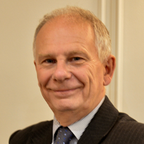
Break and Exhibition
Break and Exhibition
Break and Exhibition
10.30am – 11am EDT, 26 October 2023 ‐ 30 mins
Break and Exhibition
“What else matters…for all of us?” Integrating Relational and Restorative Practices in Corrections by Singapore Prison Service (PID142)
Workshop Session
“What else matters…for all of us?” Integrating Relational and Restorative Practices in Corrections by Singapore Prison Service (PID142)
11am – 11.30am EDT, 26 October 2023 ‐ 30 mins
Workshop Session
This presentation will provide an overview of Singapore Prison Service (SPS)’s journey in the integration of Restorative Practices (RP) in offender rehabilitation and reintegration. The goals of RP are to build and strengthen relationships, heal fractured relationships, prevent, and repair harm.Speakers

Troy Jack Thevathasan
Deputy Director, Correctional Rehabilitation Services, Psychological and Correctional Rehabilitation Division, Singapore Prison Service, Singapore
Singapore’s Gender Responsive Interventions for Women Offenders (PID141)
Workshop Session
Singapore’s Gender Responsive Interventions for Women Offenders (PID141)
11am – 11.30am EDT, 26 October 2023 ‐ 30 mins
Workshop Session
Drawing on SPS’ own local research, GR principles underpin our intervention and general programmes for women inmates, as well as staff training and engagement skills, and the facilities and processes to best serve the needs of the women offenders to support their rehabilitation.
In the community, SPS recognizes the importance of a scaffolded post-release period, including for women offenders. The women are also connected with a network of community and social service agencies that help with reintegration needs such as employment, befriending services, finances, and accommodation.
Speakers

You Can't Pour From an Empty Cup: Implementing Peer Support Teams to Improve Corrections Worker Health (PID092)
Workshop Session
You Can't Pour From an Empty Cup: Implementing Peer Support Teams to Improve Corrections Worker Health (PID092)
11am – 11.30am EDT, 26 October 2023 ‐ 30 mins
Workshop Session
This presentation will review a large multi-site implementation of correctional worker peer support teams with goals of improving staff wellness, creating a culture of mental health awareness and help seeking, and improving staff retention. We will discuss policy and training considerations, as well as the rationale for investing in peer support teams as a foundation to ensuring humane correctional systems. We will review early outcomes associated with this work and provide examples of how the peer support teams have assisted their colleagues in times of crisis, as well as their efforts to reduce the likelihood that a situation will progress to a crisis stage.Speakers

Dr. Lisa Peterson
Director, Behavioral Health Services, Management & Training Corporation (MTC), United States
Cathryn Lokey
Educational Psychologist, Consultant, Management & Training Corporation, United States
Towards the Humane Management of Prison Violence in the Irish Prison Service (PID033)
Workshop Session
Towards the Humane Management of Prison Violence in the Irish Prison Service (PID033)
11am – 11.30am EDT, 26 October 2023 ‐ 30 mins
Workshop Session
This session presents and discusses this journey, as documented and evaluated by a complete programme of research. Multiple studies utilised primarily qualitative methodologies to explore both prison officers’ (n = 26) and prisoners’ (n = 7) experiences of both previous (pre-NVRU) and current (in-NVRU) practice under the VDP policy. Interestingly, and grounded in the psychological approach underpinning current practice in the NVRU, this research also utilised the new and novel Power Threat Meaning Framework (PTMF) to generate in-depth understandings of the origins, experiences and expressions of the violent behaviour of these prisoners.
This research continues to have important implications for policy and practice in the IPS, not only in the management of this specific cohort, but in the management of challenging behaviour more generally. This workshop presents key learnings throughout this journey of shifting practice, which will be of interest to other services, jurisdictions and countries facing similar challenges.
Speakers
Orla Gallagher
Post-Doctoral Researcher, Irish Prison Service & University College Dublin, Ireland
The Role of Agency/Facility Culture in Reducing the Use of Isolation in Secure Juvenile Facilities (PID053)
Workshop Session
The Role of Agency/Facility Culture in Reducing the Use of Isolation in Secure Juvenile Facilities (PID053)
11am – 11.30am EDT, 26 October 2023 ‐ 30 mins
Workshop Session
This presentation aims to help participants:- Understand the influence that facility culture has on the use of isolation and staff retention;
- Understand research-based characteristics of highly successful organizations;
- Provide a strategic framework for reducing the use of isolation;
- Provide an effective framework for improving facility culture – Positive Human Development;
- Understand key elements to effectively shifting agency/facility culture.
Speakers

Civic Engagement Behind Bars: Voting and Voice (PID178)
Workshop Session
Civic Engagement Behind Bars: Voting and Voice (PID178)
11am – 11.30am EDT, 26 October 2023 ‐ 30 mins
Workshop Session
In this workshop, Pam Bailey, co-founder of More Than Our Crimes (MTOC), a nonprofit dedicated to lifting up the voices of individuals incarcerated in U.S. federal prisons, will review what is known about the extent to which voting privileges are granted to and exercised by incarcerated individuals worldwide, then go in depth regarding the experience of Washington, D.C.
D.C. faces several unique challenges, including far-flung prisons and the cultural/socioeconomic profile of its prisoners: Most D.C. prisoners are African American and grew up in low-income, disenfranchised neighborhoods—communities that have historically low voter registration rates, an attitude they have carried into prison.
Speakers

Restorative Action Planning(C): Teaching Staff & Offenders How to R.A.P. (PID107)
Workshop Session
Restorative Action Planning(C): Teaching Staff & Offenders How to R.A.P. (PID107)
11.30am – 12pm EDT, 26 October 2023 ‐ 30 mins
Workshop Session
Participants in this session will be provided general overview and conceptual understanding of the Restorative Action Planning process and how best to incorporate the tenets into ongoing or proposed programming efforts within their agencies. The session will provide interactive examples as well as open forum discussion of the potential affects of implementing a program that focuses on offender actions and their impact on on those they have victimized. Session participants will be able to view examples of how pro-social scripts and positive actions from offenders with their victim(s) more effectively restore the damaged ties to their victim(s) and the affected communities. The product of such interactions potentially decreasing recidivism, improving victim safety and participation in justice, and positive increasing overall community efficacy on offender reintegration.Speakers
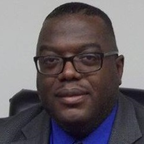
Richard I. Robinson
Senior Corrections Advisor, US Department of State - INL KM/TAD, United States
DRC Prisons: A March Towards Gender Mainstreaming (PID183)
Workshop Session
DRC Prisons: A March Towards Gender Mainstreaming (PID183)
11.30am – 12pm EDT, 26 October 2023 ‐ 30 mins
Workshop Session
The strategy attempts to address gender in DRC prisons system in its fourteen-point priority areas. Chiefly among them, establishment of gender at central level, capacity building on gender mainstreaming, integration of gender in prison’s regulatory documents, gradual increment in the establishment of female personnel, lobbying for the integration of gender in the parent ministry, diversification and intensification of prisoner’s programmes, advocacy for the construction of women prisons and staff quarters and enhancing collaboration with development partners. Corrections Unit efforts will be directed towards realization of the strategies. Specifically, Correction Unit will make available resources in its programmatic funds, provide technical and logistical support, capacity building and high-level advocacy. Further, Correction Unit will develop a robust resource mobilization mechanism to bridge the funding gap since the envisaged programmes require huge capital outlay.Speakers
Correction Officer Stories - The Hidden Voice (PID080)
Workshop Session
Correction Officer Stories - The Hidden Voice (PID080)
11.30am – 12pm EDT, 26 October 2023 ‐ 30 mins
Workshop Session
In this presentation, I will be sharing the stories of six ex correction officers I interviewed about their experiences of working within a prison system. The aim is to draw attention to the psychological complexity of correction officer work and the significant impact on many officers of the continual exposure to traumatic incidents that occur within in the prison. The interviews reflect the depth of wisdom and knowledge officers have about the system yet also the immense challenges they face in maintaining their mental health well being often in the face of a harsh prison culture. In Australia, correction officers are not in a position to talk publicly about their work which has, inadvertently meant their 'voice' in the many discussion around Justice Reform, prisoner rehabilitation and so on is simply invisible. These interviews in a small way will make the correction officer 'voice' that little more visible!Speakers
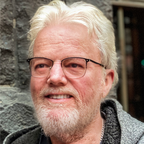
Study on Deaths in Chilean Prisons from January 2019 to December 2022. Panorama, Diagnosis and Proposals (PID160)
Workshop Session
Study on Deaths in Chilean Prisons from January 2019 to December 2022. Panorama, Diagnosis and Proposals (PID160)
11.30am – 12pm EDT, 26 October 2023 ‐ 30 mins
Workshop Session
Speakers
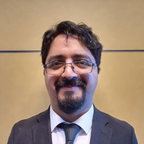
The Management of People Serving Life Sentences in Ireland: A Human Rights-based Strategy from Committal to Release (PID047)
Workshop Session
The Management of People Serving Life Sentences in Ireland: A Human Rights-based Strategy from Committal to Release (PID047)
11.30am – 12pm EDT, 26 October 2023 ‐ 30 mins
Workshop Session
This presentation will discuss PhD research, which, using quantitative and qualitative methods, explored the management of men serving life sentences in Ireland, with particular focus on the new strategy. Using the IPS Prisoner Information Management System, data was collected from the files of 352 men serving life sentences in Ireland. This included demographic data, offence data, and the following data by sentence stage: disciplinary reports, visits, letters, telephone calls. The aim was to identify key strengths, needs, and risks that would guide priorities at different sentence stages (early=0-7 years, middle=7-14 years, late=14-21 years, above average=21+ years). Interviews were also conducted with 13 men serving life sentences at different sentence stages. The aim was to explore the experiences of those sentenced both before and after the implementation of the strategy on 01/04/2017.
Findings to date will be discussed. Together with human rights standards, this research will meaningfully inform life sentence policy, procedure, and practice in in Ireland, advocating a more compassionate and humane approach to sentence management.
Speakers
Humanity in Action: Revolutionising Criminal Justice Through a Whole Systems Approach (PID170)
Workshop Session
Humanity in Action: Revolutionising Criminal Justice Through a Whole Systems Approach (PID170)
11.30am – 12pm EDT, 26 October 2023 ‐ 30 mins
Workshop Session
Speakers

Giving up Crime: Empowering the Prisoner as Owner of the Change Process (PID147)
Workshop Session
Giving up Crime: Empowering the Prisoner as Owner of the Change Process (PID147)
12pm – 12.30pm EDT, 26 October 2023 ‐ 30 mins
Workshop Session
The method of Giving up Crime enables prisoners to take responsibility for their current and future life and, speed up the movement away from a life in crime. The giving up crime workbook helps detainees to actively engage in self-change by a personal reentry plan.
This method activates self restorative forces, reduces criminal motivation and has a positive impact on their motivation to change, skills and wellbeing.
While the detainee is working with the book, the support by others e.g. the mentoring practitioner/prison officer, volunteer or family member can be a valuable tool to reinforce positive changes.
Evaluation outcomes conclude that the method of Giving Up Crime is much appreciated by prisoners, reduces criminal motivation and increases success in the motivation for change. Other interesting effects: reduction in feelings of powerlessness when confronted with barriers, increases in self efficacy. Moreover, engaging prison officers in the delivery of the method contributes to a more supportive prison social climate.
Speakers
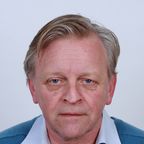
Born Out of the ICPA 2022 Meeting: A Multisector Collaboration Addressing Needs of Honduran Women Deprived of Liberty (PID066)
Workshop Session
Born Out of the ICPA 2022 Meeting: A Multisector Collaboration Addressing Needs of Honduran Women Deprived of Liberty (PID066)
12pm – 12.30pm EDT, 26 October 2023 ‐ 30 mins
Workshop Session
Speakers

"Between the Blue and Green": Building Community Cohesion within a Correctional Centre (PID013)
Workshop Session
"Between the Blue and Green": Building Community Cohesion within a Correctional Centre (PID013)
12pm – 12.30pm EDT, 26 October 2023 ‐ 30 mins
Workshop Session
Speakers

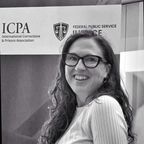
Serious Injuries on Rikers Island: Improving Violence Prevention in New York City Jails (PID035)
Workshop Session
Serious Injuries on Rikers Island: Improving Violence Prevention in New York City Jails (PID035)
12pm – 12.30pm EDT, 26 October 2023 ‐ 30 mins
Workshop Session
For decades, violence and unsafe conditions have plagued the New York City jails on Rikers Island, resulting in tens of thousands of serious injuries to people in custody. Despite the importance that injury data holds, the Department of Correction has long been troubled by poor accountability and indifference, which in turn has led to a significant underreporting of violence and serious injuries.Speakers
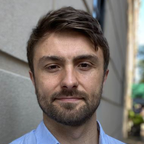
Bart Baily
Director, Violence Prevention, New York City Board of Correction, United States
Prison Audits to Reduce Overcrowding in Prisons in Africa (PID084)
Workshop Session
Prison Audits to Reduce Overcrowding in Prisons in Africa (PID084)
12pm – 12.30pm EDT, 26 October 2023 ‐ 30 mins
Workshop Session
Speakers
Lunch and Exhibition
Lunch and Exhibition
Lunch and Exhibition
12.30pm – 1.30pm EDT, 26 October 2023 ‐ 1 hour
Lunch and Exhibition
Three Countries, Three Uniforms, Three Cultures, One Common Goal - To Improve Correctional Facilities (PID109)
Workshop Session
Three Countries, Three Uniforms, Three Cultures, One Common Goal - To Improve Correctional Facilities (PID109)
1.30pm – 2pm EDT, 26 October 2023 ‐ 30 mins
Workshop Session
Speakers
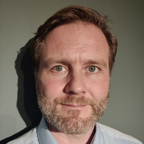
Ole Geir Arefjord
Prison officer, Bergen fengsel, Directorate of Norwegian Correctional Service, Norway
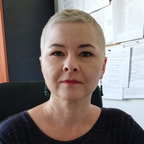
Oana Paicu
Probation counsellor, Iasi Probation Office, National Probation Directorate (NPD), Romania
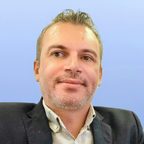
Catalin Olaru
Head of International Cooperation and Programs Department, National Probation Directorate (NPD), Romania

Ewa Pysz
Prison officer, Specialist Regional District in Katowice, Central Board of Prison Service, Poland
Towards Freedom – Using Probationary Liberty Under Supervision to Reduce Reoffending and Enhance Desistance (PID112)
Workshop Session
Towards Freedom – Using Probationary Liberty Under Supervision to Reduce Reoffending and Enhance Desistance (PID112)
1.30pm – 2pm EDT, 26 October 2023 ‐ 30 mins
Workshop Session
Speakers

Pia Andersson
Senior Specialist, Project Manager, Prison and Probation Service of Finland, Finland
The Benefits and Challenges of Prison Visits: Insights from a Large-scale Dutch Study on Prison Visitation (PID126)
Workshop Session
The Benefits and Challenges of Prison Visits: Insights from a Large-scale Dutch Study on Prison Visitation (PID126)
1.30pm – 2pm EDT, 26 October 2023 ‐ 30 mins
Workshop Session
Prison visitation is an important aspect of humane correctional practice as it is one of the few opportunities presented to incarcerated individuals to facilitate meaningful social interaction and stay connected to the community while incarcerated. Moreover, prison systems worldwide have been encouraged to implement visits based on the belief that visits will help reduce reoffending. In this large-scale study using data from over 4,000 incarcerated individuals in Dutch prisons we explore who gets visited and which factors relate to why some individuals are (not) visited, as well as the consequences of these visits on behavior in prison and after release.Speakers
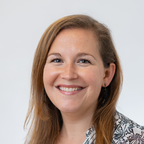
Enhancing Human-centered Penitentiary System in Georgia (PID128)
Workshop Session
Enhancing Human-centered Penitentiary System in Georgia (PID128)
1.30pm – 2pm EDT, 26 October 2023 ‐ 30 mins
Workshop Session
Speakers

Humanity and Reducing Reoffending Through the Use of Universal Services (PID162)
Workshop Session
Humanity and Reducing Reoffending Through the Use of Universal Services (PID162)
1.30pm – 2pm EDT, 26 October 2023 ‐ 30 mins
Workshop Session
Speakers
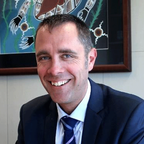
David Brown
Chief Executive, Dept. for Correctional Services South Australia, Australia
Achieving Meaningful Human Rights Reforms in Corrections through External Prison Oversight (PID089)
Workshop Session
Achieving Meaningful Human Rights Reforms in Corrections through External Prison Oversight (PID089)
1.30pm – 2.30pm EDT, 26 October 2023 ‐ 1 hour
Workshop Session
This Q&A panel is sponsored by the ICPA Network on External Prison Oversight and Human Rights and will be facilitated by Dr. Ivan Zinger (Correctional Investigator of Canada). Three panelists (Secretary General of the Association for the Prevention of Torture, Chief Inspector of Prisons for Ireland, and former Correctional Investigator of Canada) will discuss how oversight agencies can influence correctional practice and policies to better comply with domestic and international human rights obligations.Speakers

Dr. Ivan Zinger PhD
Correctional Investigator of Canada, Office of the Correctional Investigator of Canada, Canada

Howard Sapers
Visiting Professor, University of Ottawa, Former Correctional Investigator of Canada, Canada
Barbara Bernath
Secretary General, Association for the Prevention of Torture, Switzerland
Moving from Blame to Accountability: Lessons from a State Correctional System (PID181)
Workshop Session
Moving from Blame to Accountability: Lessons from a State Correctional System (PID181)
2pm – 2.30pm EDT, 26 October 2023 ‐ 30 mins
Workshop Session
Speakers
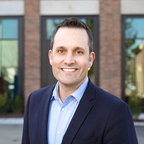
How Can Courtesy Stigma Explain the Visitation Experience of Prison Visitors? (PID093)
Workshop Session
How Can Courtesy Stigma Explain the Visitation Experience of Prison Visitors? (PID093)
2pm – 2.30pm EDT, 26 October 2023 ‐ 30 mins
Workshop Session
Speakers
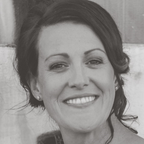
"Smart Prison" in Hong Kong (PID016)
Workshop Session
"Smart Prison" in Hong Kong (PID016)
2pm – 2.30pm EDT, 26 October 2023 ‐ 30 mins
Workshop Session
Speakers
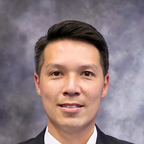
Ho-kei Toby Leung
Senior Superintendent, Hong Kong Correctional Services Department, China
Human Rights in Indian Prisons: Challenges and Changes in Policy, Procedures and Practices (PID185)
Workshop Session
Human Rights in Indian Prisons: Challenges and Changes in Policy, Procedures and Practices (PID185)
2pm – 2.30pm EDT, 26 October 2023 ‐ 30 mins
Workshop Session
Speakers

Dr. Upneet Lalli
Head Training and Research, Institute of Correctional Administration, India
Correctional Oversight in the United States (PID122)
Workshop Session
Correctional Oversight in the United States (PID122)
2.30pm – 3pm EDT, 26 October 2023 ‐ 30 mins
Workshop Session
This will be an interactive panel with representatives of various prison oversight models in the United States. The panelists will explain their particular model and allow for comparison to the other models represented by the panel. There will be a focus on how their model helps advance human rights, as well as the benefits and hinderances their model may represent.Speakers
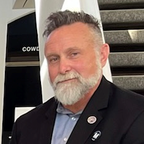
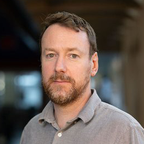
Aiden King
Director, John Howard Association of Illinois, Pennsylvania Prison Society, Correctional Association of New York, United States

Together We Create Opportunities and Help People Reform (PID164)
Workshop Session
Together We Create Opportunities and Help People Reform (PID164)
2.30pm – 3pm EDT, 26 October 2023 ‐ 30 mins
Workshop Session
Speakers
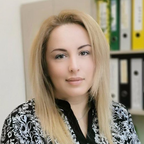
Nadya Radkovska
Commissioner, Head of International cooperation and training of staff department, General Directorate “Execution of Sentences”, Bulgaria
Alternatives to Imprisonment for Drug-using Offenders: Is There a Need for a Common EU Legal Framework? (PID027)
Workshop Session
Alternatives to Imprisonment for Drug-using Offenders: Is There a Need for a Common EU Legal Framework? (PID027)
2.30pm – 3pm EDT, 26 October 2023 ‐ 30 mins
Workshop Session
Speakers
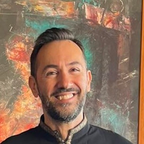
Breaking the Cycle of Violence Through Social Integration (PID039)
Workshop Session
Breaking the Cycle of Violence Through Social Integration (PID039)
2.30pm – 3pm EDT, 26 October 2023 ‐ 30 mins
Workshop Session
Speakers

Talia Karamanoukian
Director int., Sous-ministériat des Services correctionnels, Canada
Preserving Identity: The Role of Technology in Upholding Religious and Cultural Freedoms for Indigenous Peoples in Prison (PID002)
Workshop Session
Preserving Identity: The Role of Technology in Upholding Religious and Cultural Freedoms for Indigenous Peoples in Prison (PID002)
2.30pm – 3pm EDT, 26 October 2023 ‐ 30 mins
Workshop Session
The presentation will show how digital services, such as video conferencing and online educational resources, could be a powerful tool for promoting cultural freedoms in prisons. These technologies can connect Indigenous prisoners with elders, community leaders, and cultural resources that are otherwise difficult to access.
It highlights the importance of preserving cultural identity and technology’s role in promoting religious and cultural freedoms for Indigenous peoples in prison. By addressing the unique needs and challenges faced by Indigenous prisoners, digital services have the potential to facilitate positive change.
Speakers

Norwegian Correctional Service and Human Rights - Far From a Perfect Match: Examining Challenges and Opportunities (PID188)
Workshop Session
Norwegian Correctional Service and Human Rights - Far From a Perfect Match: Examining Challenges and Opportunities (PID188)
2.30pm – 3pm EDT, 26 October 2023 ‐ 30 mins
Workshop Session
Norway is by many viewed as being in the forefront of correctional services development. The Scandinavian model has gained increased attention in the last decade. Annually we receive many visitors, including colleagues from correctional services around the world, researchers, policy-makers and students. While we firmly stand by our Scandinavian model, we now have to acknowledge that all is not well in “little Scandinavia”. During the last five years the correctional services have encountered increased scrutiny and criticism both from international and national human rights monitoring bodies as well as a number of cases litigated before the domestic courts. All of these have one thing in common, namely pointing in the direction of the fact that our policies, practices and regulatory frameworks are not in line with international human rights standards in several areas. Unlike many other countries, our shortcomings are not related to prison overcrowding or poor prison conditions, but rather to issues such as routine and indiscriminate application of control measures and use of solitary confinement and isolation. We are today in a situation with several lawsuits and demands for compensation from a high number of current and former inmates.Speakers

Jan-Erik Sandlie
Deputy Director General, The Directorate of the Norwegian Correctional Service, Norway

Line Wilberg
Head of Section, Section for progression, rehabilitation and security, Directorate of Norwegian Correctional Service, Norway
Break and Exhibition
Break and Exhibition
Break and Exhibition
3pm – 3.30pm EDT, 26 October 2023 ‐ 30 mins
Break and Exhibition
European Prison Observatory (PID216)
Plenary Session
European Prison Observatory (PID216)
3.30pm – 4pm EDT, 26 October 2023 ‐ 30 mins
Plenary Session
The European Prison Observatory (EPO), coordinated by Italian NGO Antigone and supported by the EU Criminal Justice Programme, analyzes and promotes prison system improvements in Europe. It advocates for international detention standards, collects data on prison conditions (e.g. overcrowding, healthcare, solitary confinement), and informs policymakers, civil society, and the public. EPO also champions alternatives to imprisonment and prisoners' rights. During the COVID-19 pandemic, EPO monitored its impact on European prisons, reported on prison authorities' measures, and highlighted prisoners' challenges, advocating for their rights. EPO complements independent inspection bodies, ensuring transparency, and promoting civil society monitoring. They've launched a campaign, "Prison Monitoring by Civil Society: A Document for European Institutions," to raise awareness and seek European institution support for independent prison monitoring, along with standards, guidelines, and mechanisms for acting on findings.Speakers
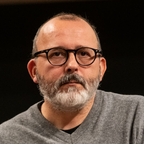
All Hands on Deck: Singapore Prison Service’s Correctional Approach (PID221)
Plenary Session
All Hands on Deck: Singapore Prison Service’s Correctional Approach (PID221)
4pm – 4.30pm EDT, 26 October 2023 ‐ 30 mins
Plenary Session
Aside from the efforts of SPS, an ecosystem of support in the community is critical to achieve desistance for ex-offenders. Hence, SPS works closely with Yellow Ribbon Singapore (YRSG) to raise employability, build public trust, and galvanise the community. The Yellow Ribbon Project (YRP) started in 2004 as a national public engagement campaign to change society’s mindset in giving ex-offenders a second chance in life and is anchored on 3As – raising Awareness, generating Acceptance, and inspiring community Action to support the rehabilitation and reintegration of ex-offenders for a more inclusive society. SPS and YRSG have sustained YRP efforts for about 20 years, and public perception surveys have shown improvements over the years in the community’s support for the rehabilitation and reintegration of ex-offenders.
Singapore has also seen its 2-year recidivism rate decrease and stabilise from around 40% in the early 2000s to about 20% in 2020. This plenary will share how the correctional approach of SPS has evolved over the years, its rehabilitation and reintegration efforts, as well as its collaboration with the whole-of-government, community partners, volunteers, employers, ex-offenders, and their families.
Speakers

Invitation to Singapore 2024
Plenary Session
Invitation to Singapore 2024
4.30pm – 4.45pm EDT, 26 October 2023 ‐ 15 mins
Plenary Session
Closing Speech
Plenary Session
Closing Speech
4.45pm – 4.55pm EDT, 26 October 2023 ‐ 10 mins
Plenary Session
Speakers

Closing Remarks
Plenary Session
Closing Remarks
4.55pm – 5pm EDT, 26 October 2023 ‐ 5 mins
Plenary Session
Speakers

Prison of Leuze-en-Hainaut
Prison/Facility Visits
Prison of Leuze-en-Hainaut
7am – 2pm EDT, 27 October 2023 ‐ 7 hours
Prison/Facility Visits
Prison of Hasselt
Prison/Facility Visits
Prison of Hasselt
7.30am – 1.30pm EDT, 27 October 2023 ‐ 6 hours
Prison/Facility Visits
-
a section for those in custody
-
two sections for inmates serving long prison sentences
-
a small section for inmates serving short prison sentences
-
a separate section housing female inmates
Prison of Ittre
Prison/Facility Visits
Prison of Ittre
7.45am – 1.15pm EDT, 27 October 2023 ‐ 5 hours 30 mins
Prison/Facility Visits
-
two sections with a closed regime
-
two sections with an open regime
Prison of Haren
Prison/Facility Visits
Prison of Haren
8am – 1pm EDT, 27 October 2023 ‐ 5 hours
Prison/Facility Visits
Located in the Brussels region, the prison of Haren opened in the fall of 2022. With a capacity of 1190 places, it is the largest prison in Belgium. It is both a remand prison and a prison for convicts and accommodates men and women. There is also mother and baby unit on site as well as a psychiatric section, a medical centre and a secured clinical observation centre.
Consisting of 19 buildings, each with its own function and with mutual interaction, it is more a prison village than a regular prison. There are buildings housing inmates and buildings with communal facilities. Allowing inmates to walk around autonomously on site, in a secure manner, contributes to their independence.
The residential buildings are divided into separate living units where inmates live together in small groups. They are also arranged in such a way as to encourage inmates to do chores similar to those in normal life. The different units allow for a tailored approach and regime, ranging from (more) open to high-security zones. Central buildings with communal facilities are the so-called ‘town hall’ where inmates can go for all kinds of services and activities as well as the entrance building. There are also buildings with workhouses, logistics services, staff canteen, offices for staff, etc.
The new prisons of Haren and Dendermonde are the first Belgian prisons where custodial tasks are carried out by detention counsellors and security officers, new specialised staff roles replacing the sole role of prison officer.
Prison of Dendermonde
Prison/Facility Visits
Prison of Dendermonde
8.15am – 1pm EDT, 27 October 2023 ‐ 4 hours 45 mins
Prison/Facility Visits
-
entrance building, including e.g. courtrooms
-
services building, including e.g. visiting facilities, classrooms
-
cellular complex:
-
cells equipped with a shower
-
a specific regime per wing
-
-
logistics building, including large workhouses
Prison of Beveren
Prison/Facility Visits
Prison of Beveren
8.30am – 12.30pm EDT, 27 October 2023 ‐ 4 hours
Prison/Facility Visits
-
entrance building
-
services building, including courtrooms, visit facilities
-
cellular complex with wings offering closed and more open regimes
-
logistics and inmates’ workhouse building
Forensic Psychiatric Centre Antwerp
Prison/Facility Visits
Forensic Psychiatric Centre Antwerp
8.30am – 12.30pm EDT, 27 October 2023 ‐ 4 hours
Prison/Facility Visits



















